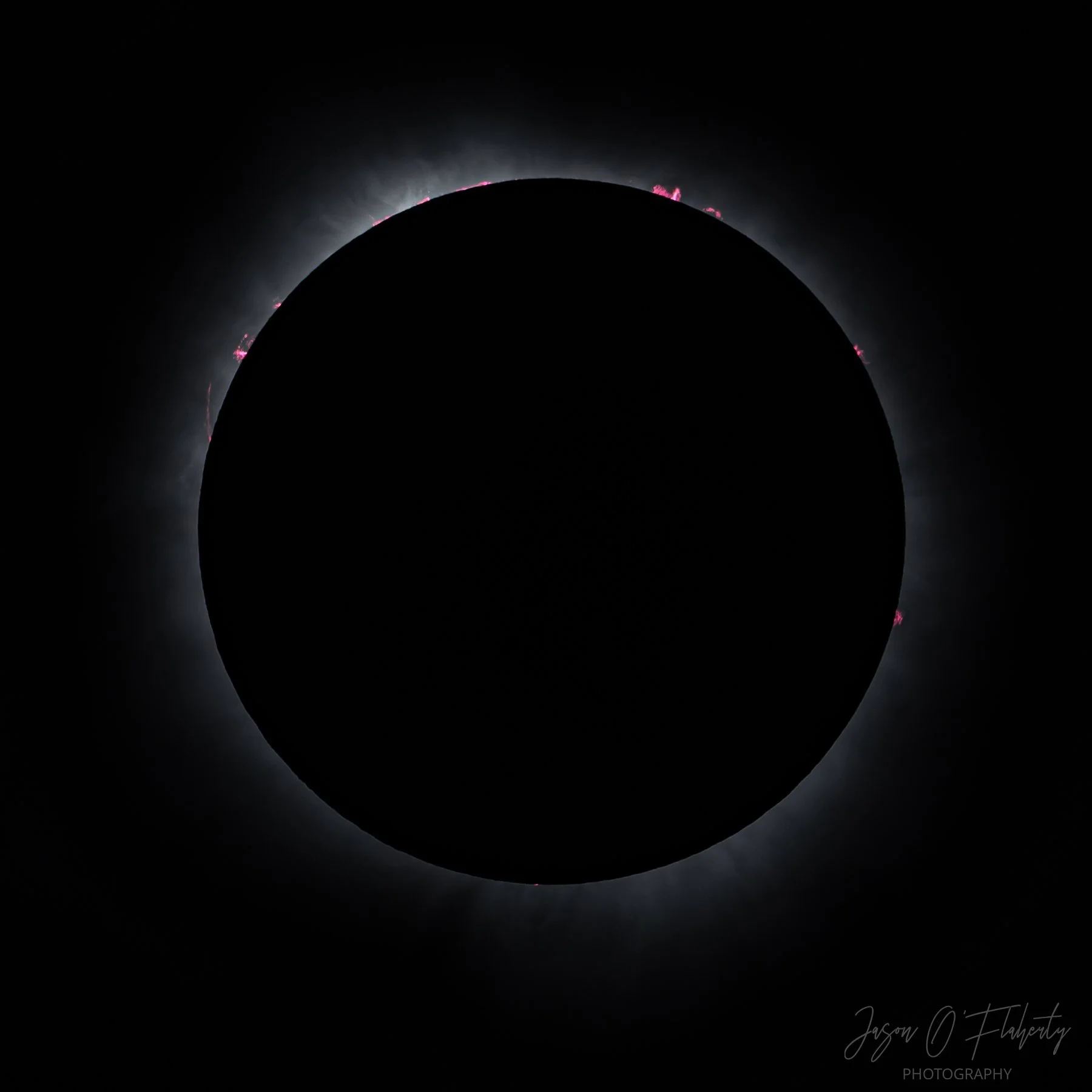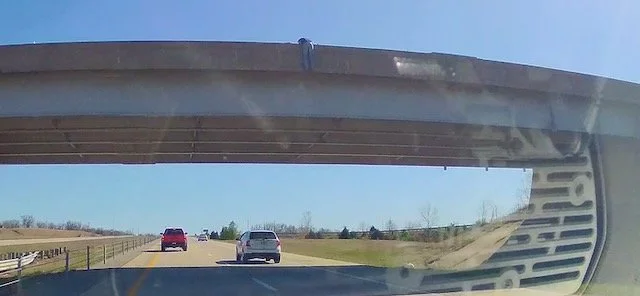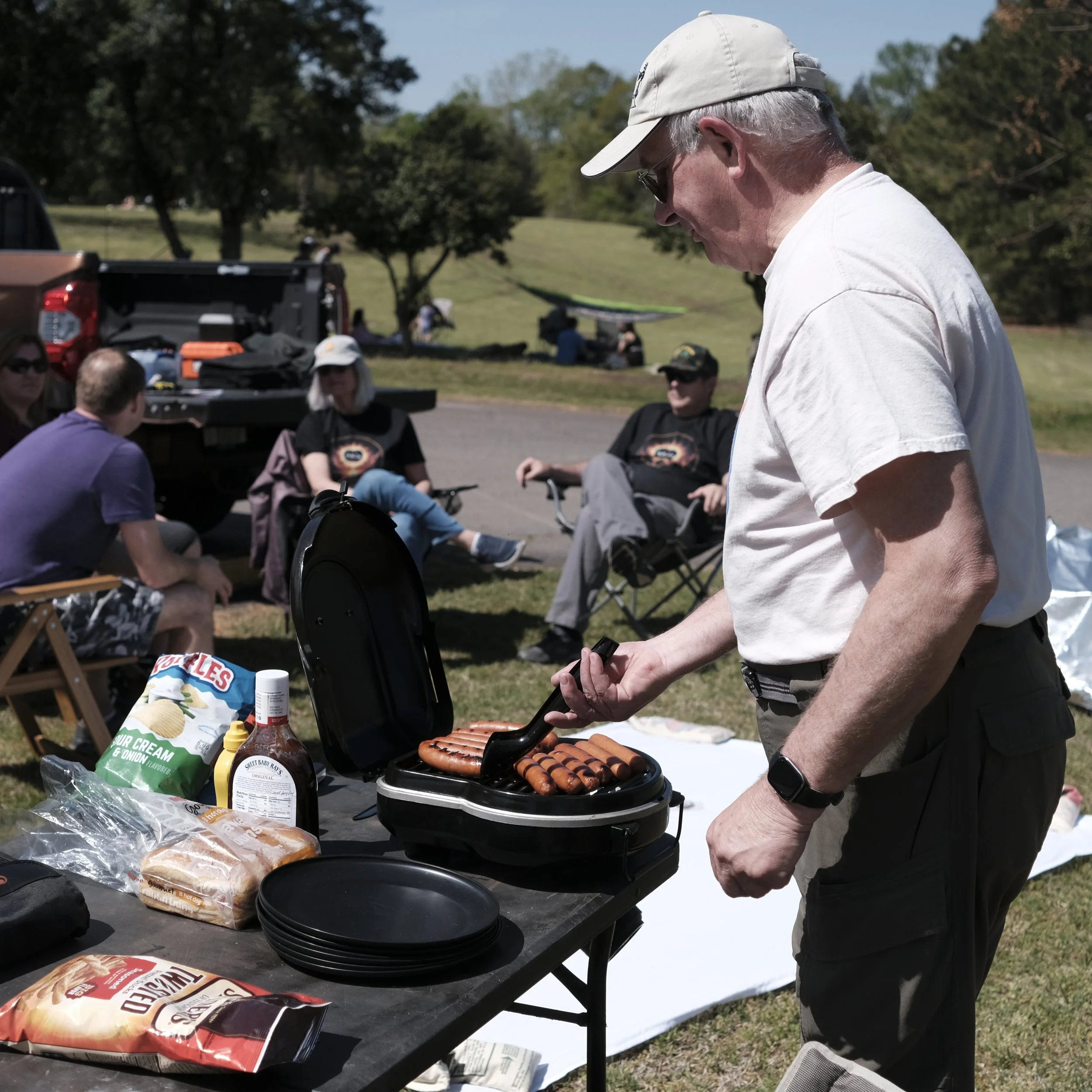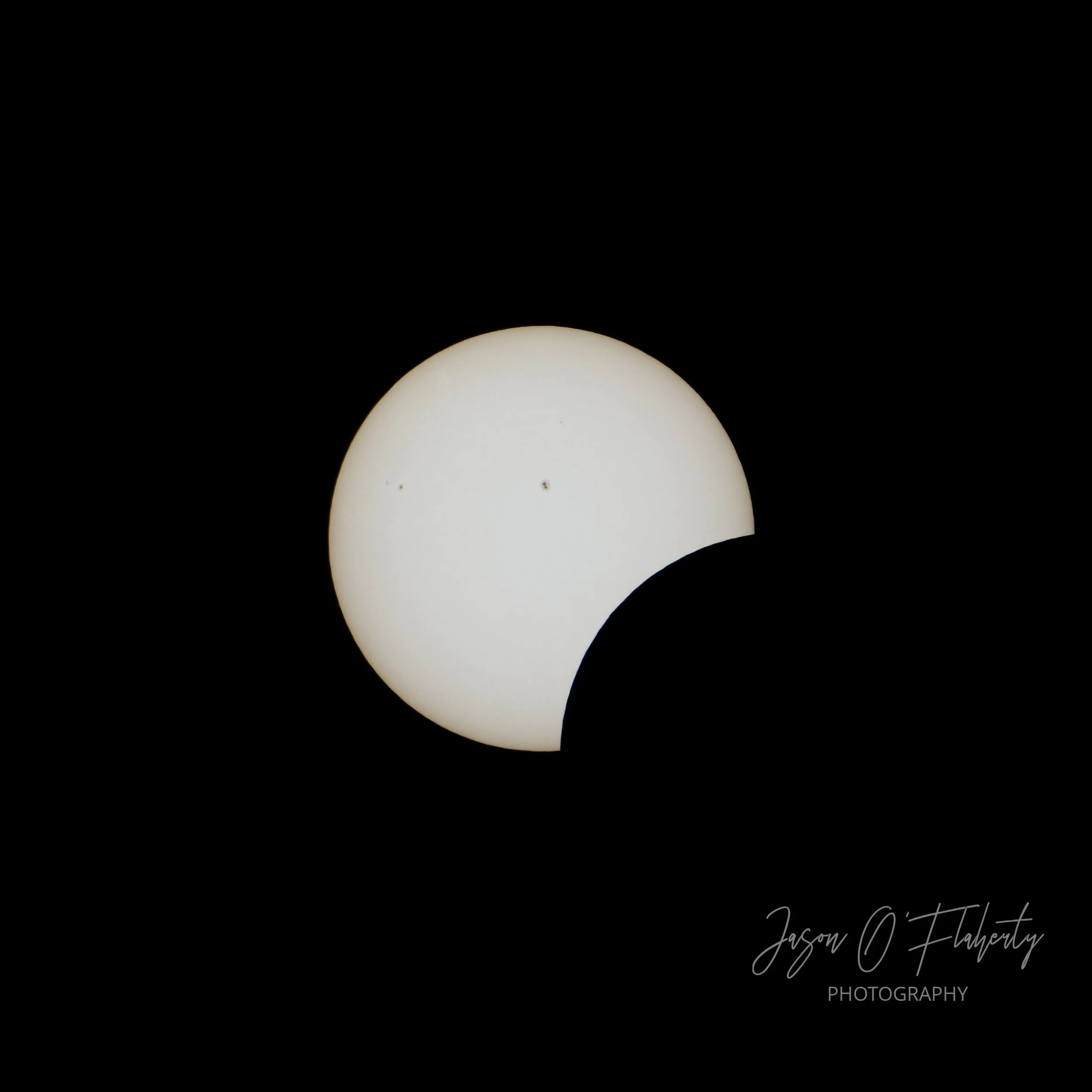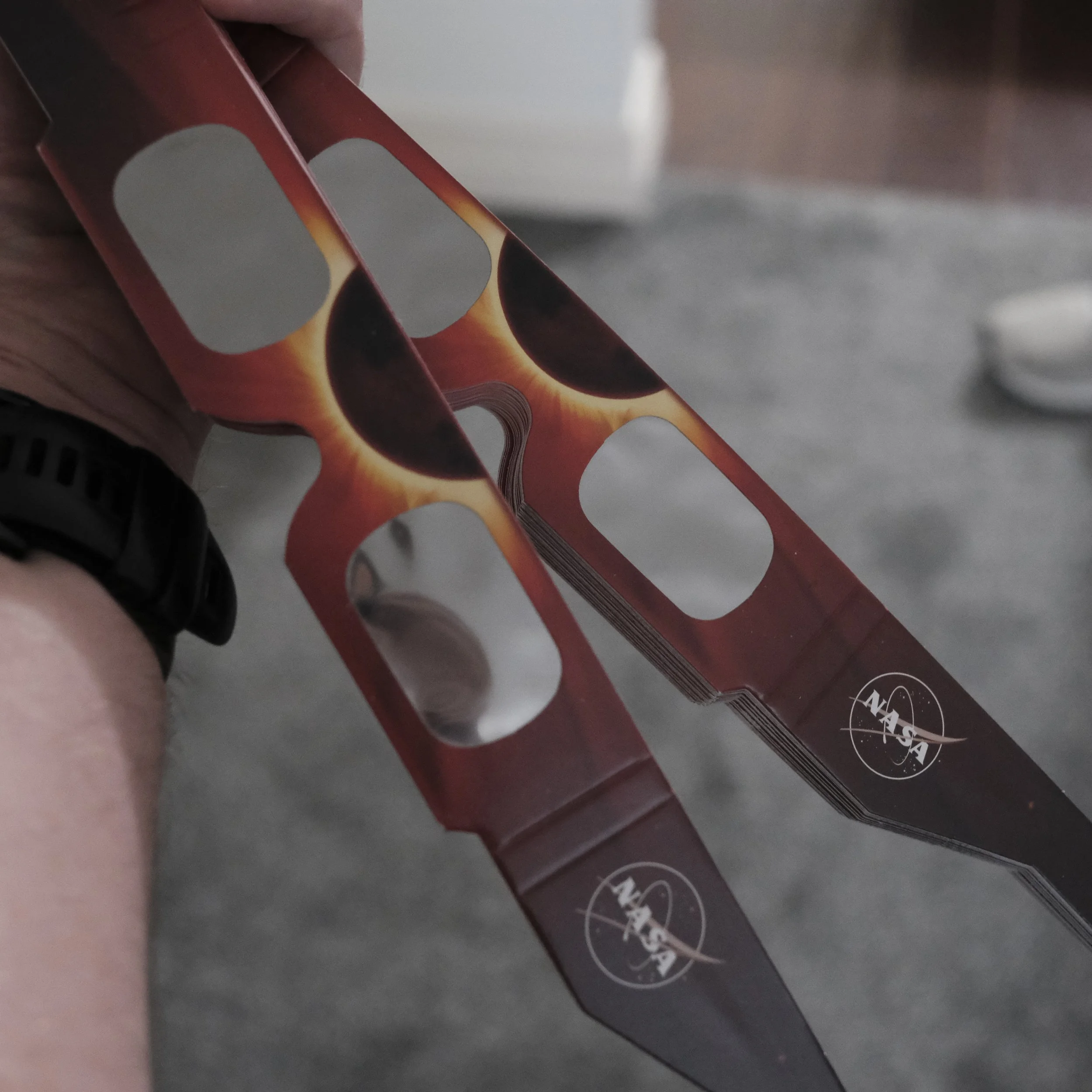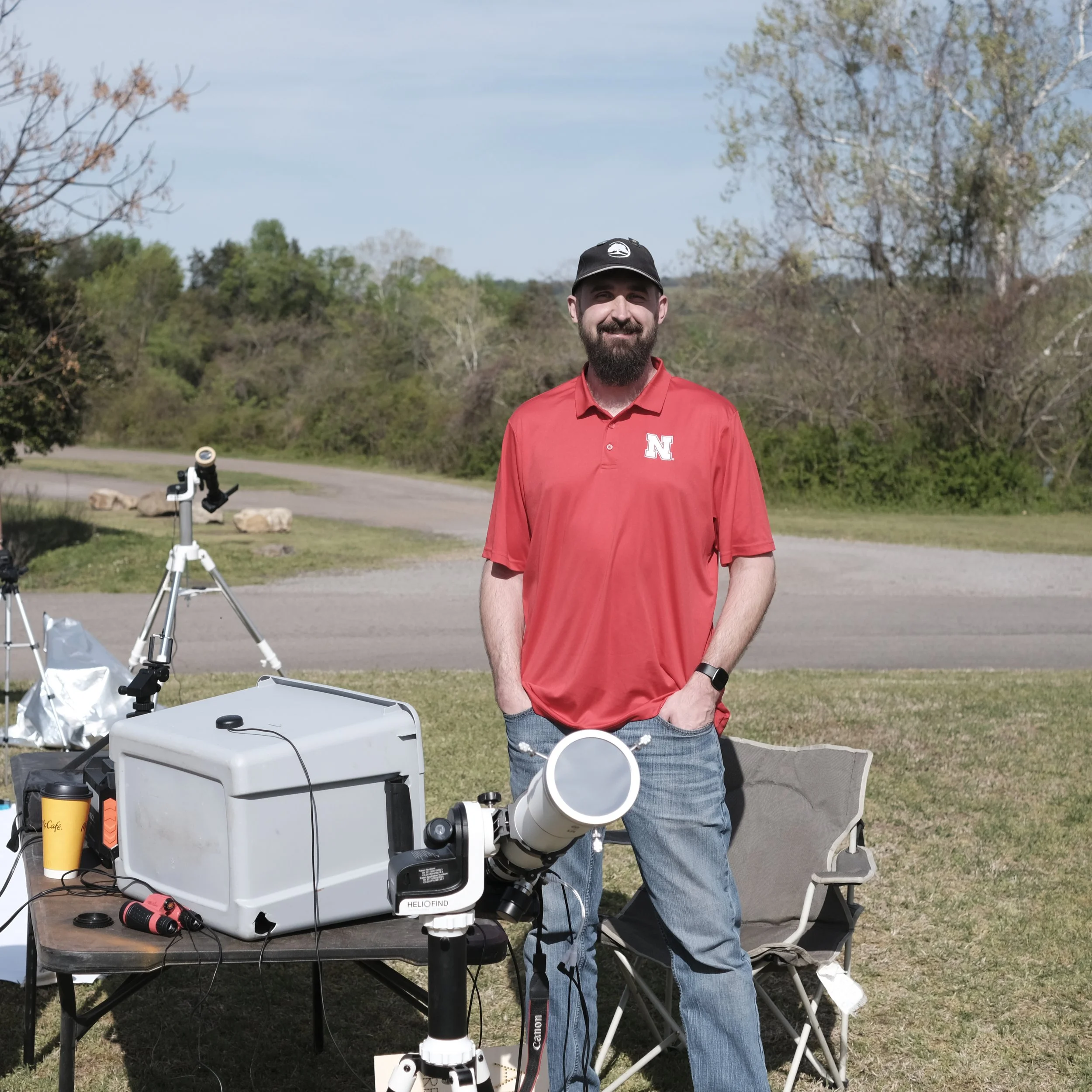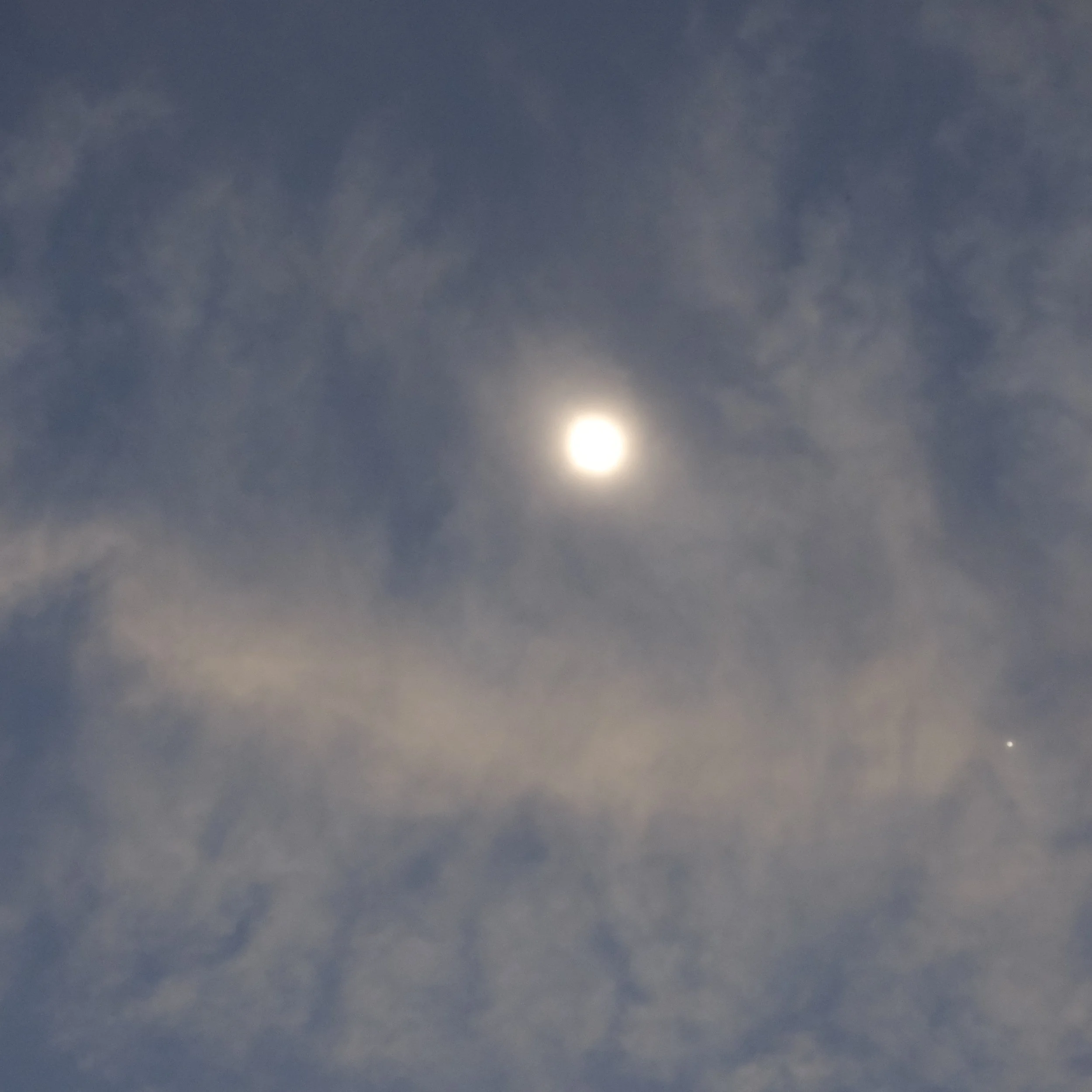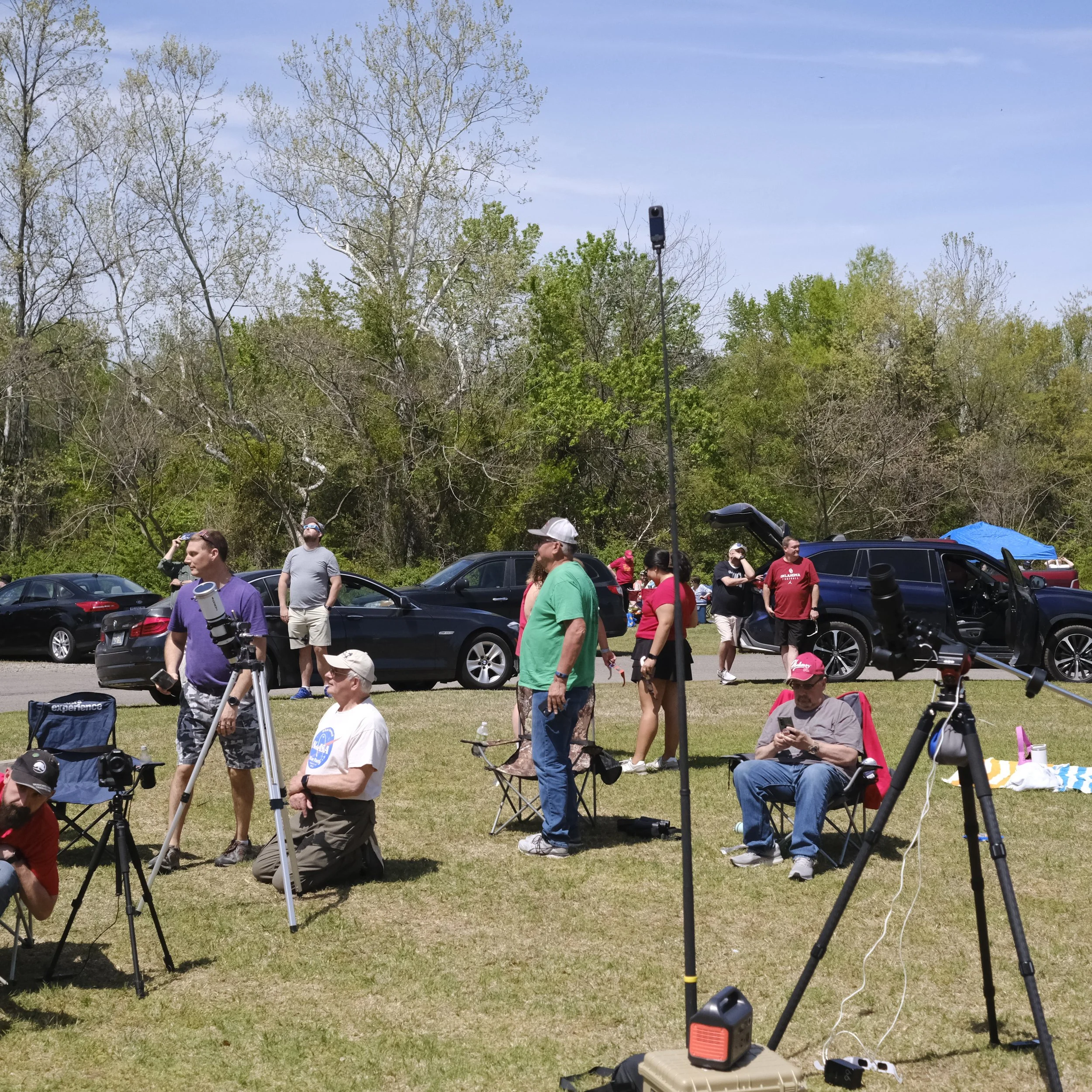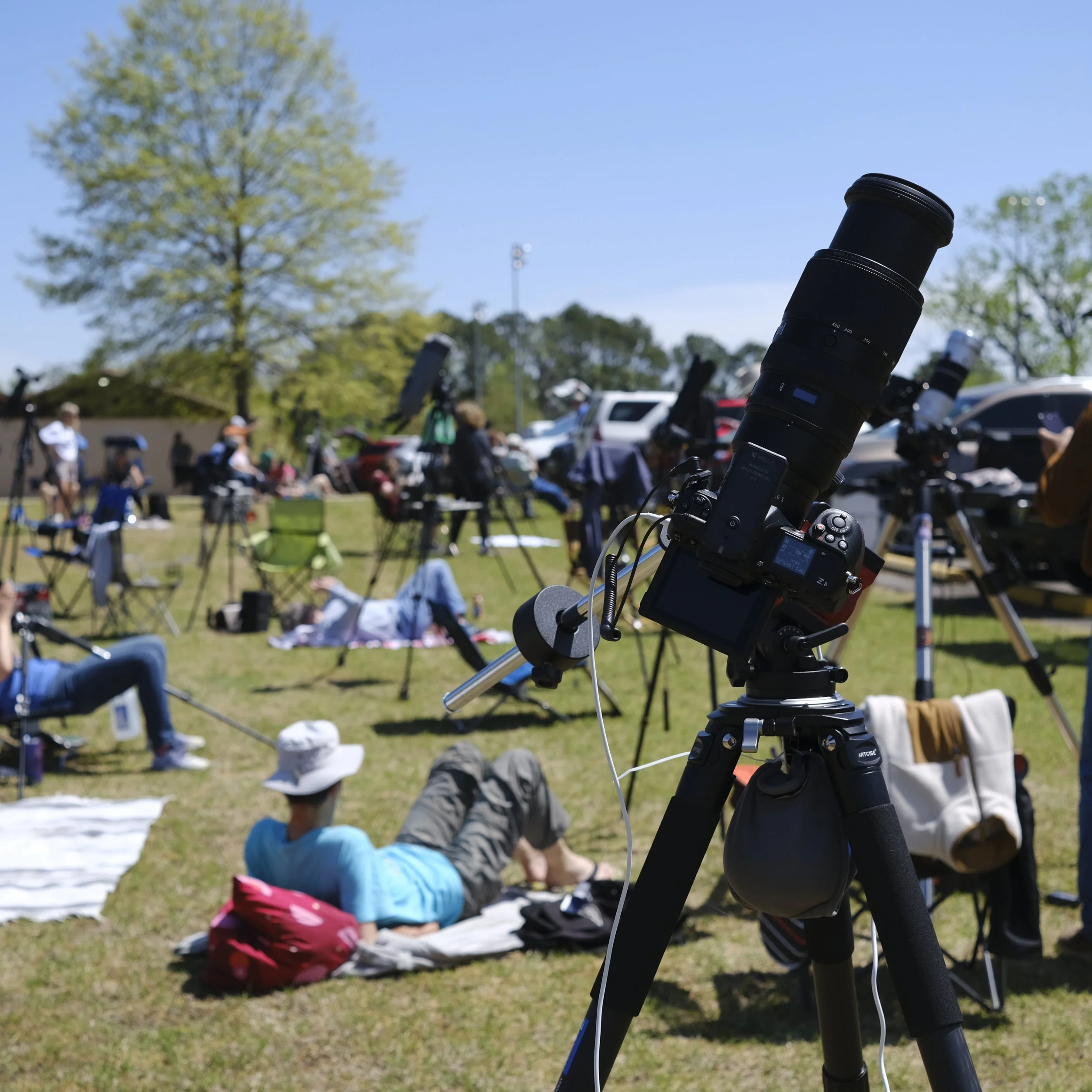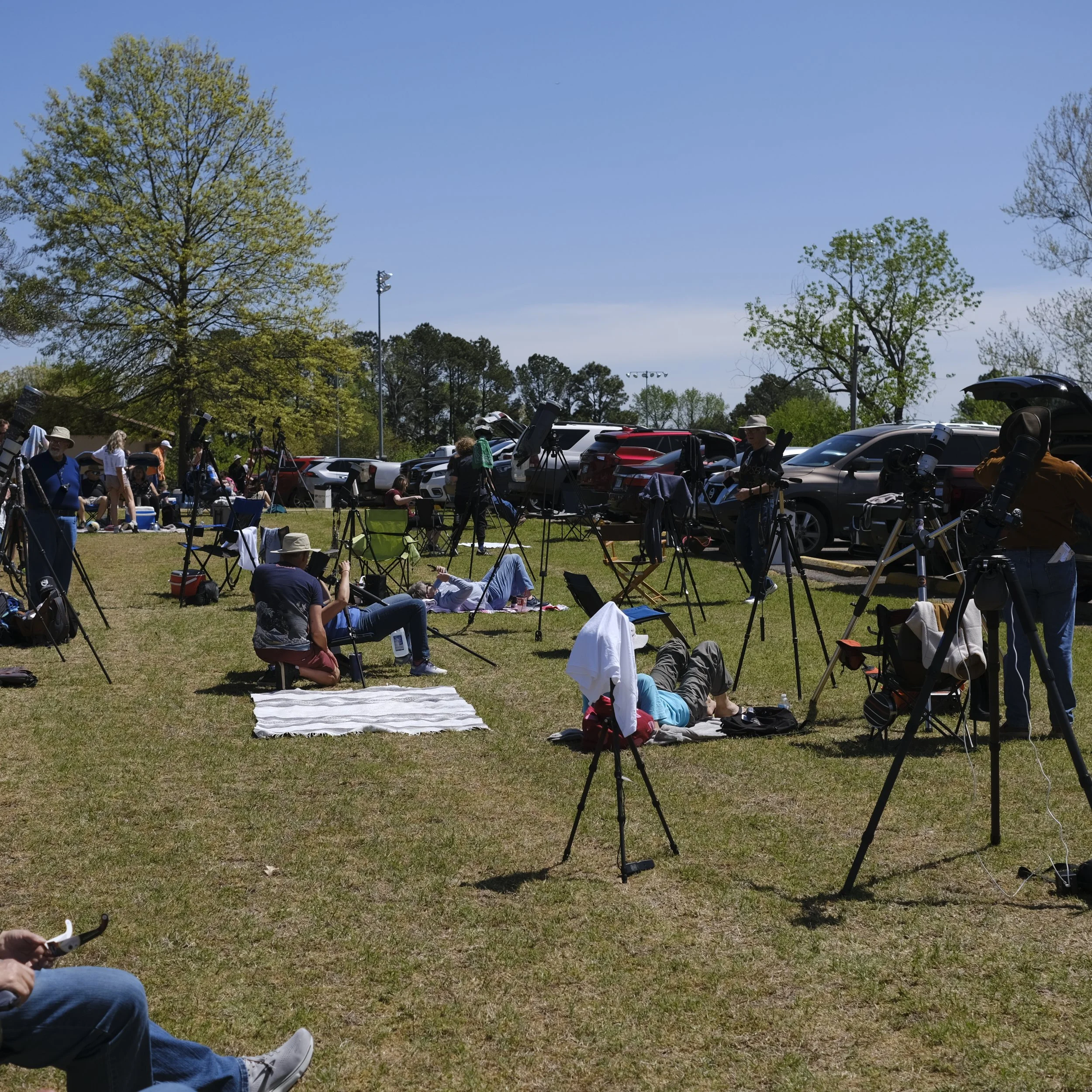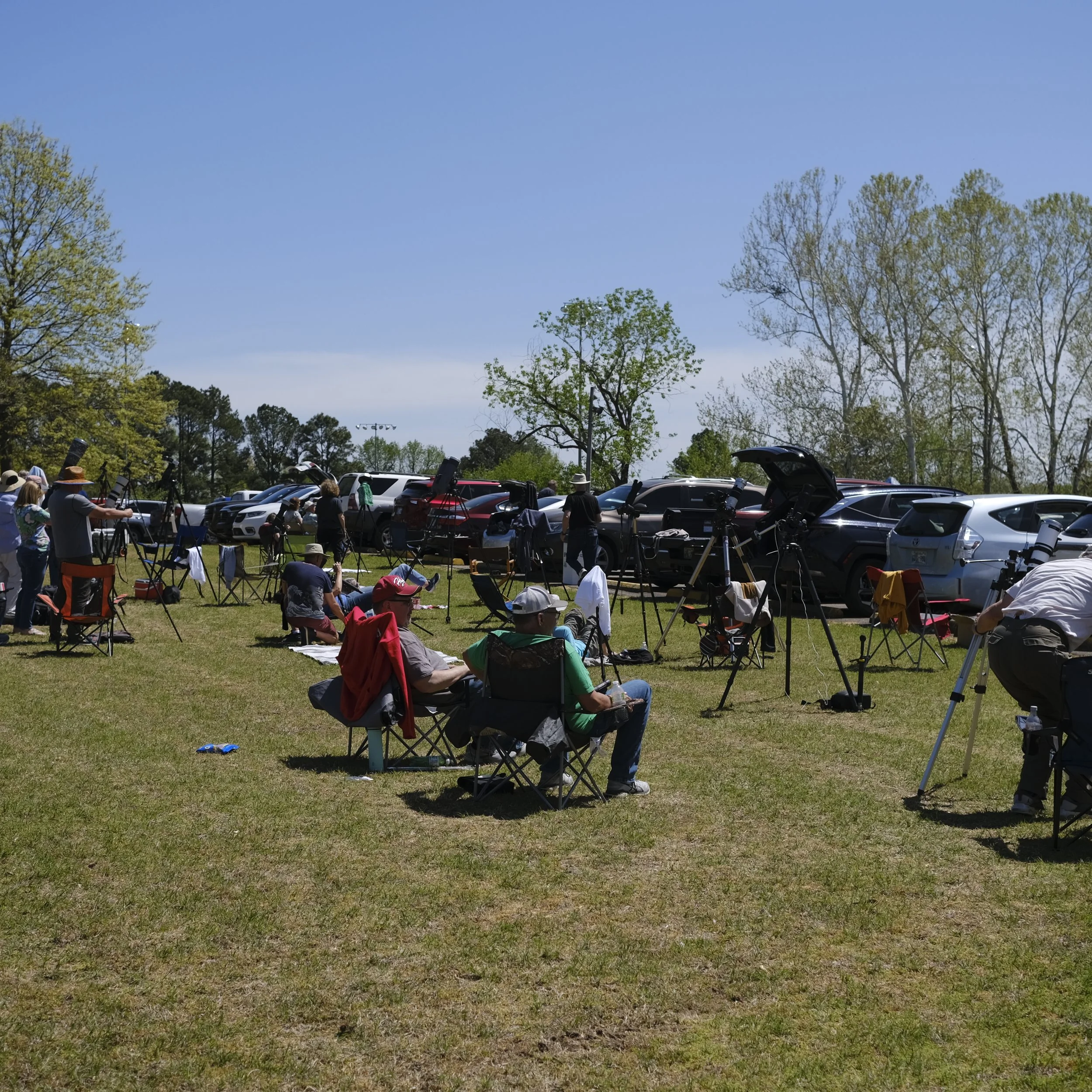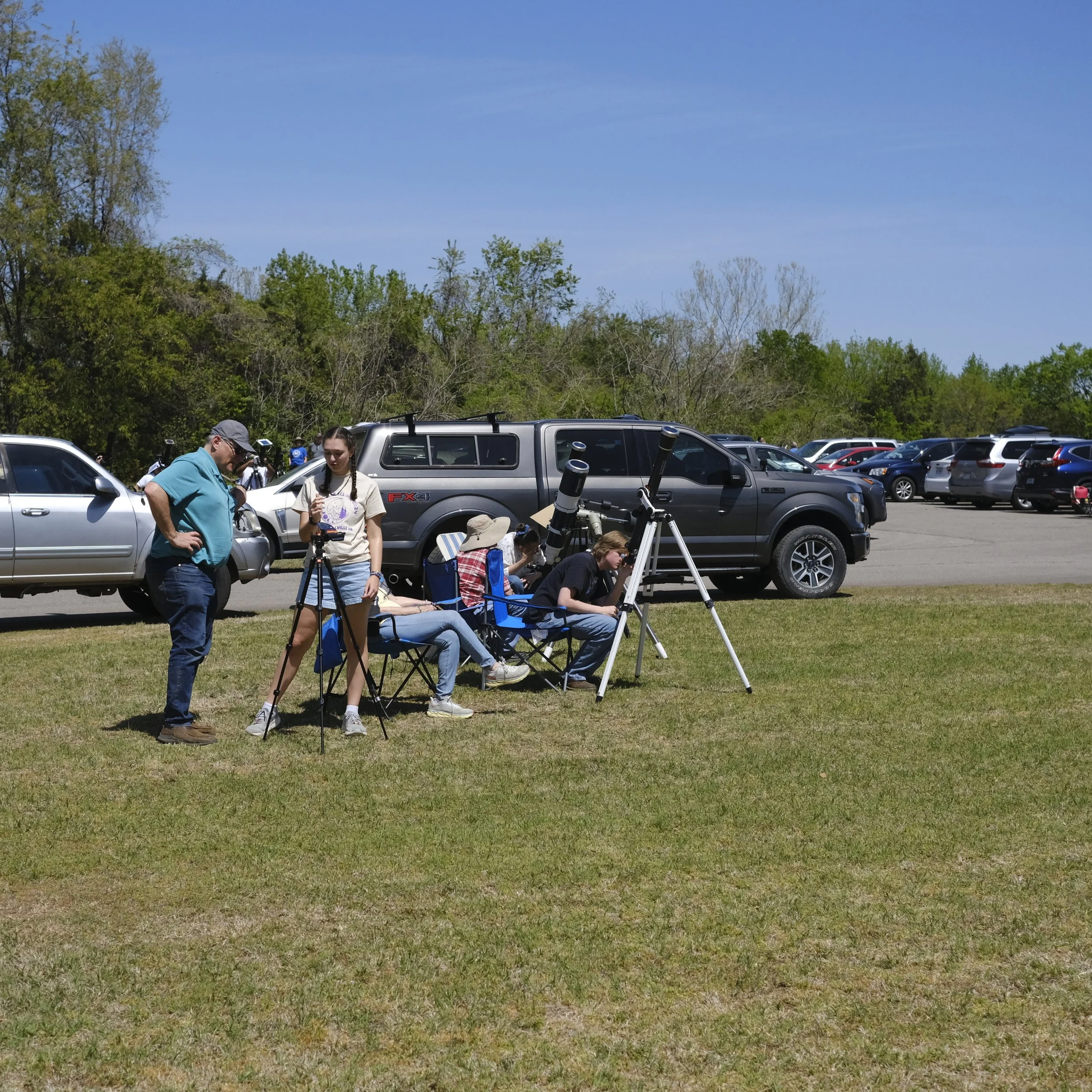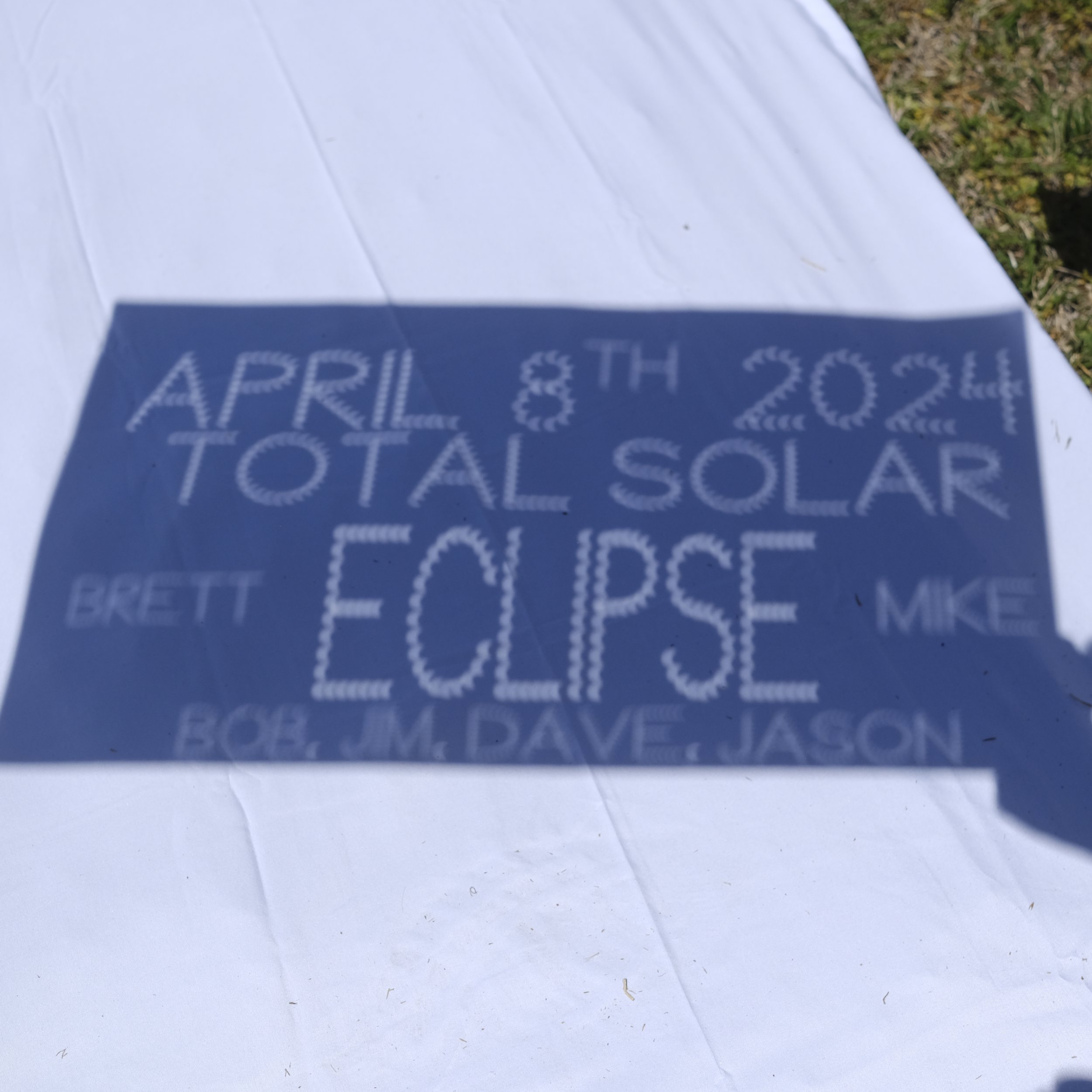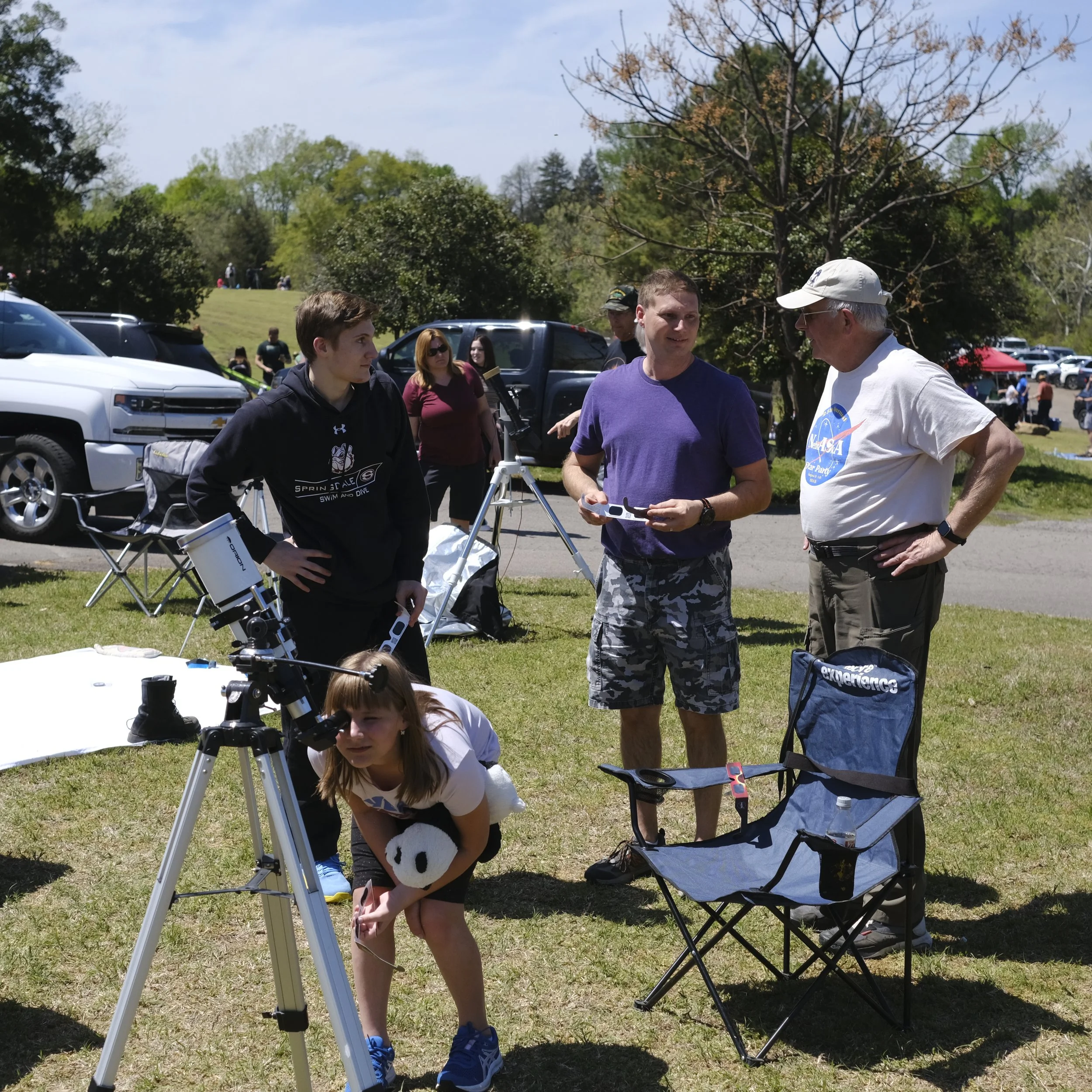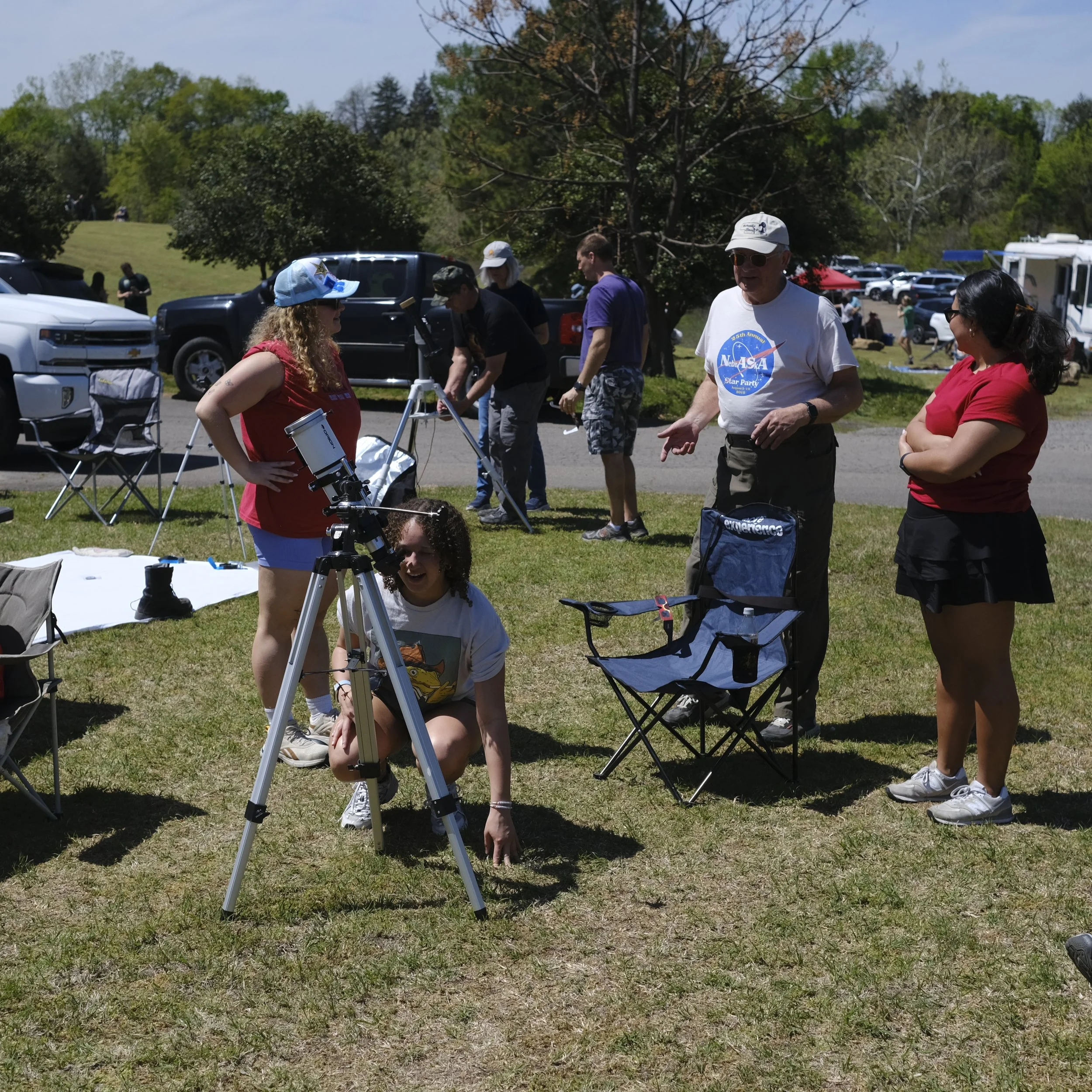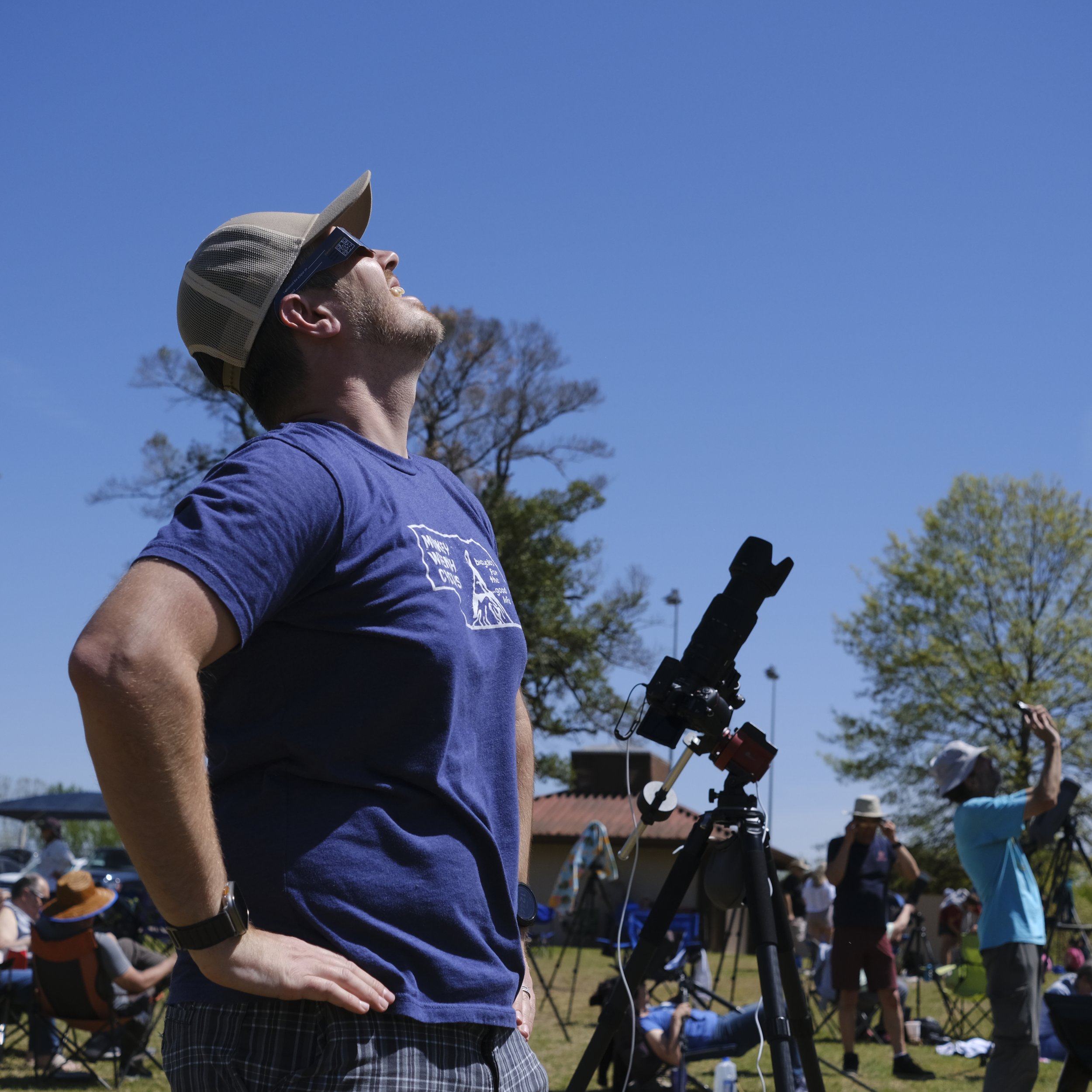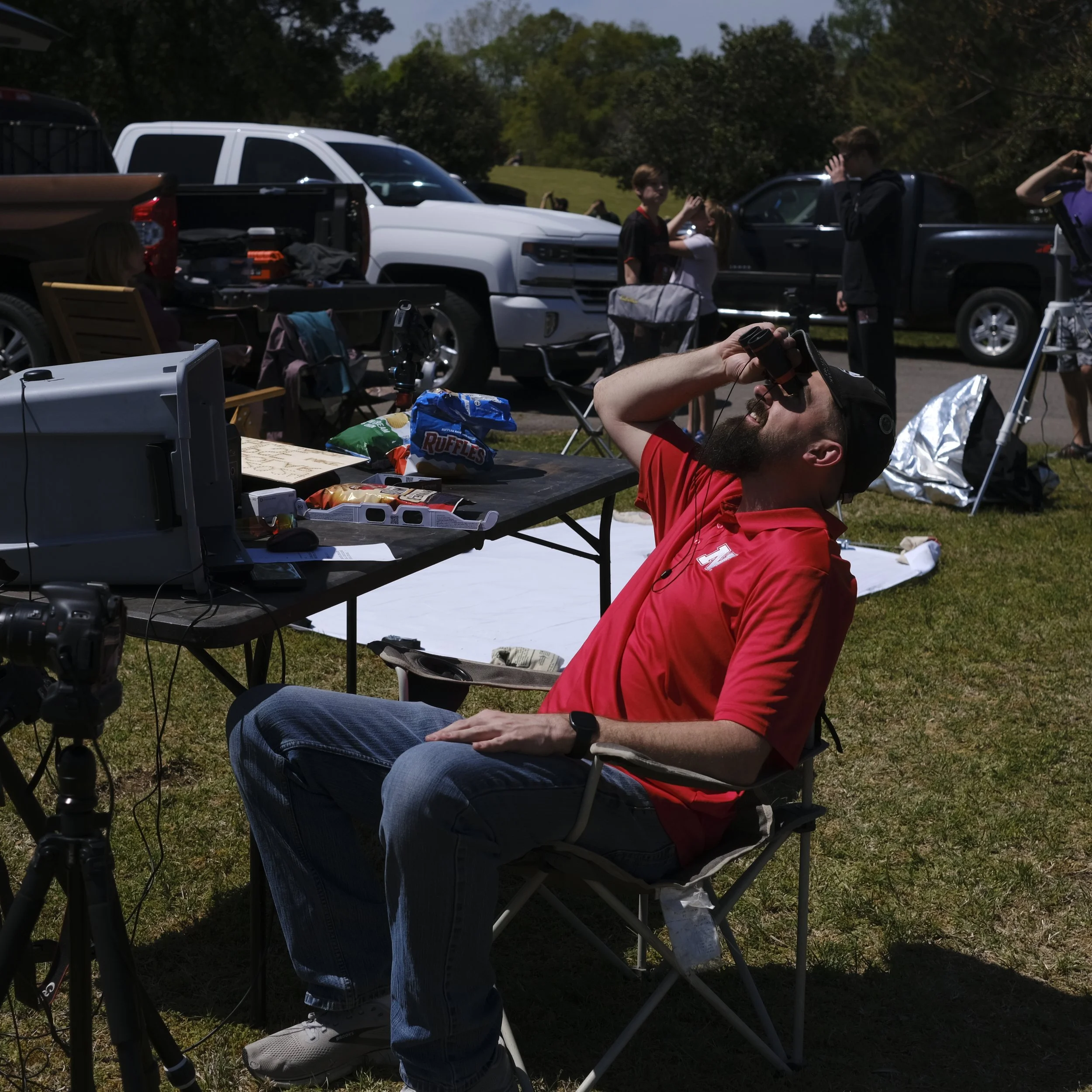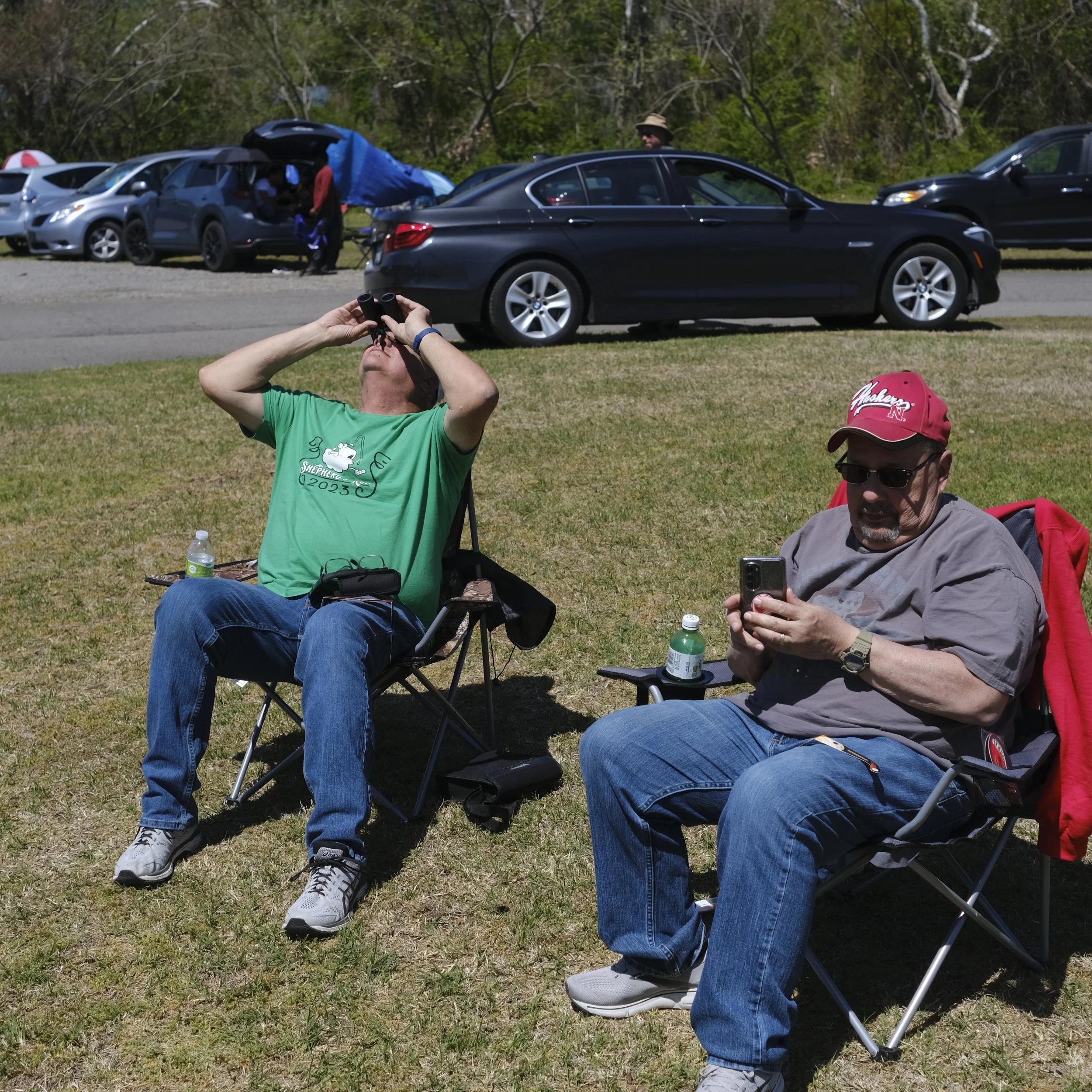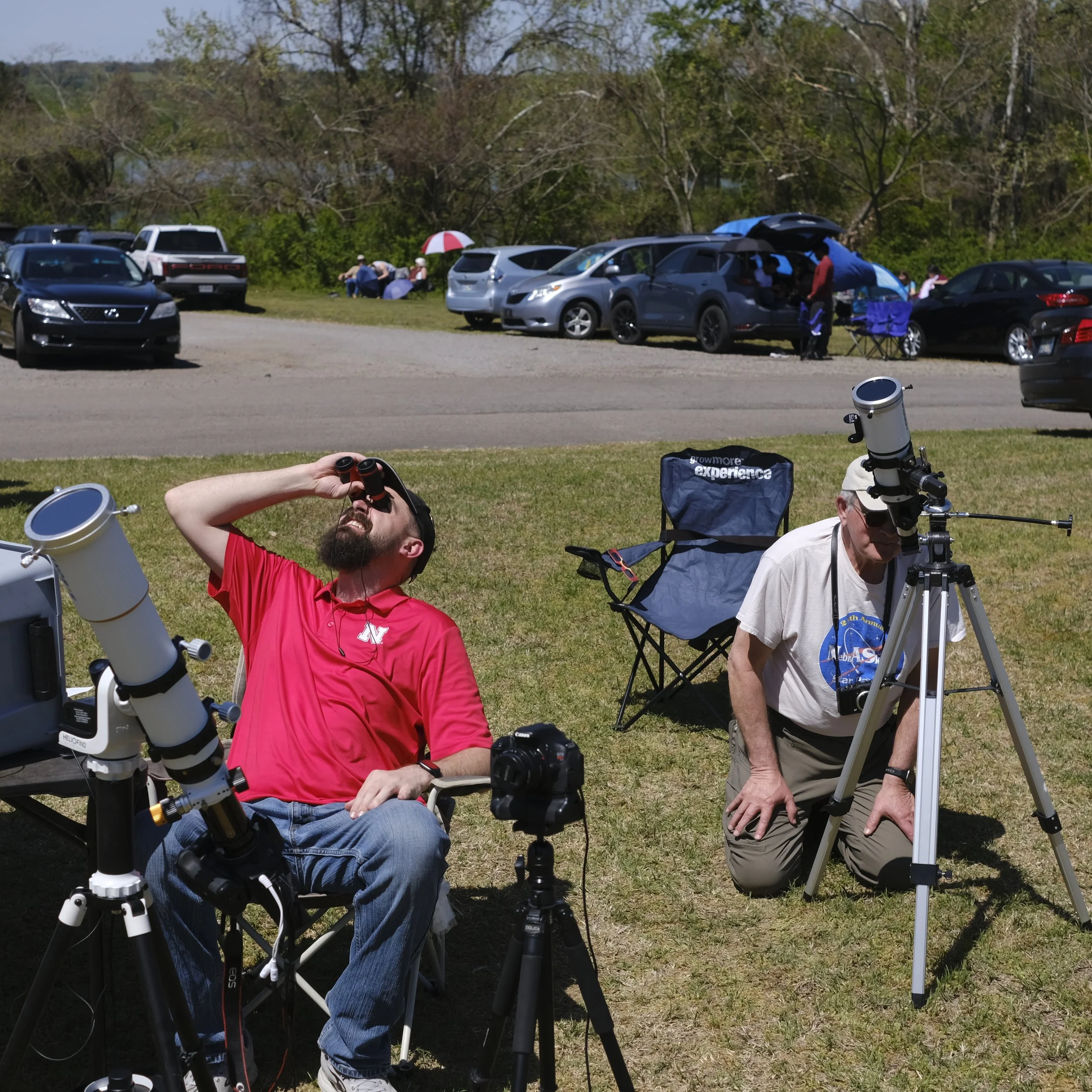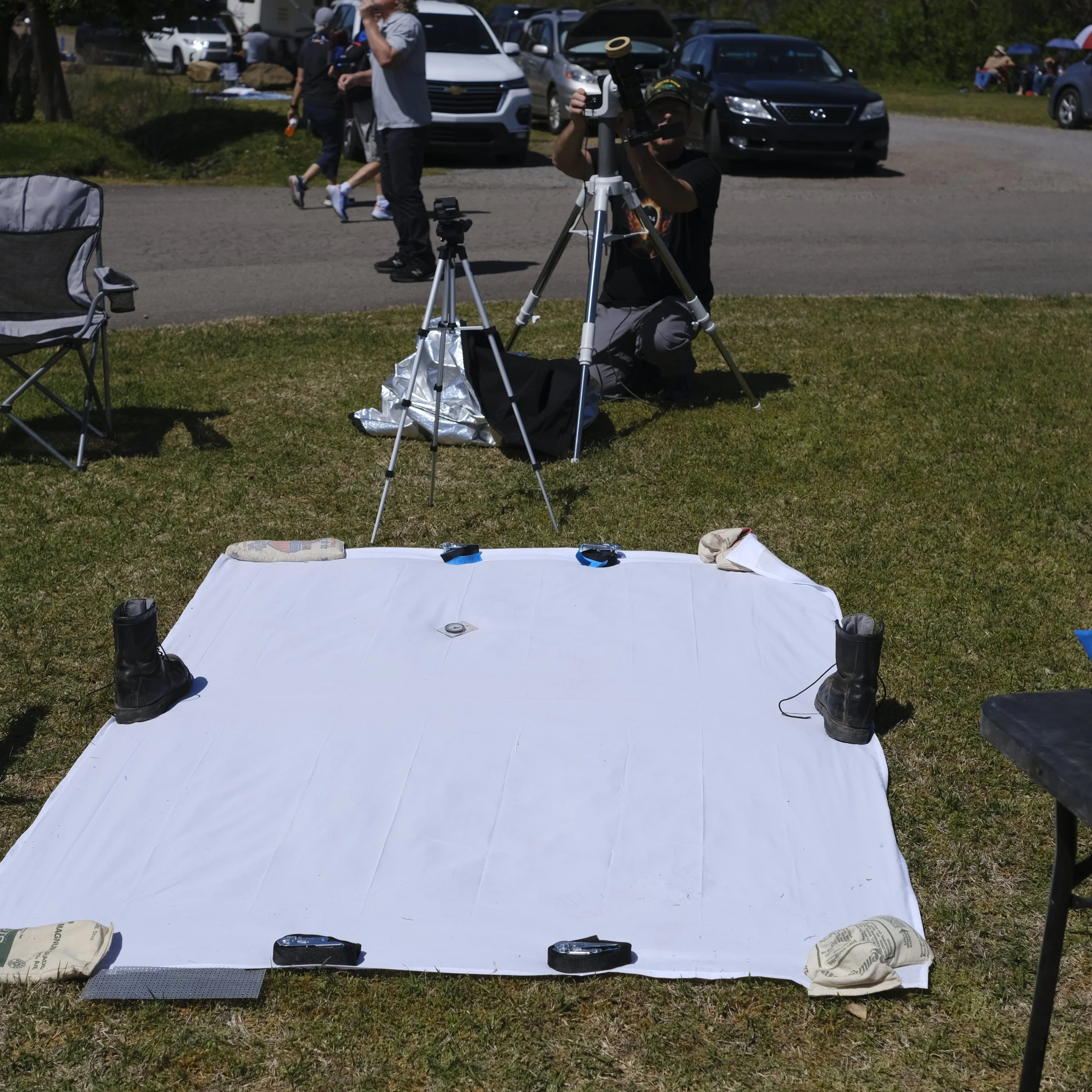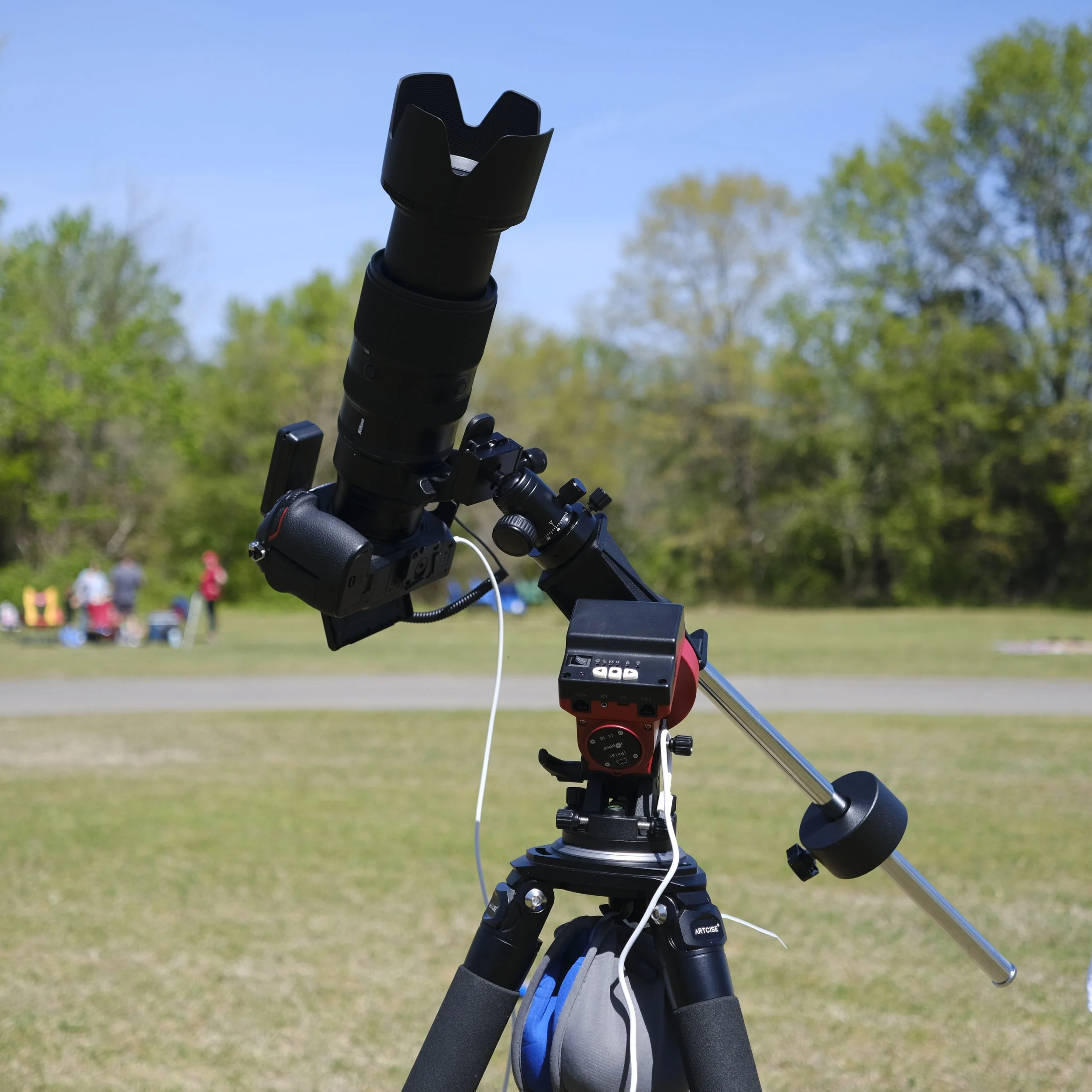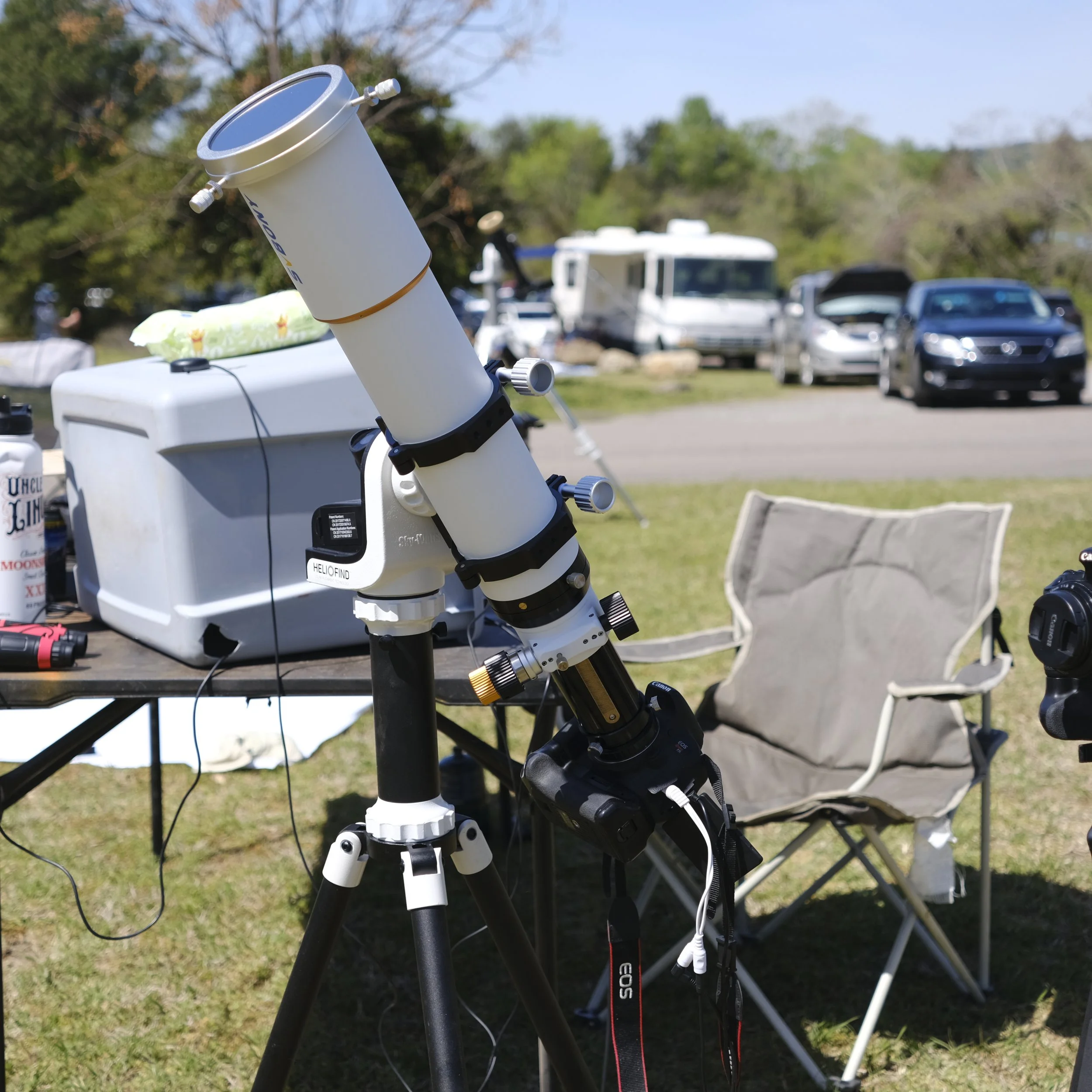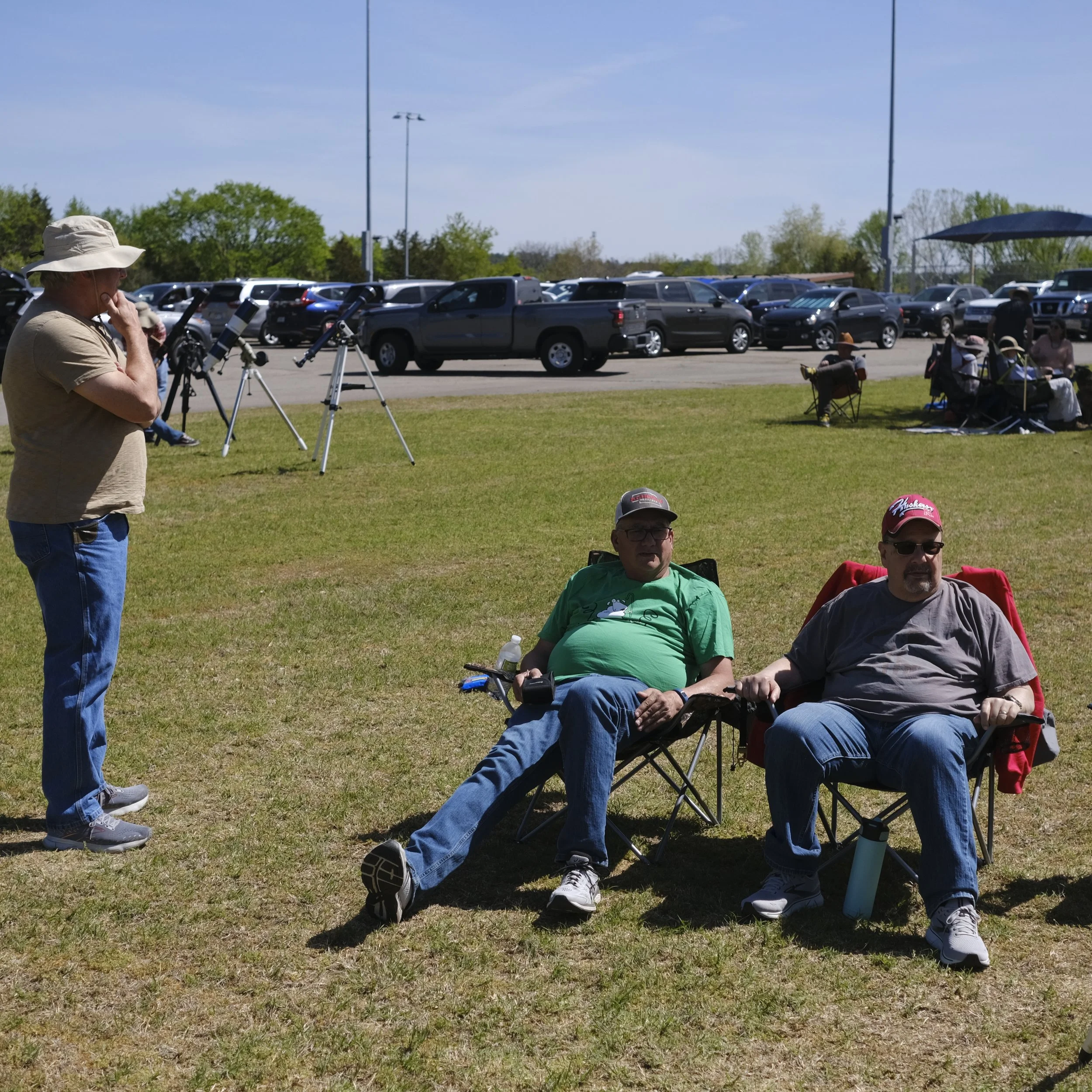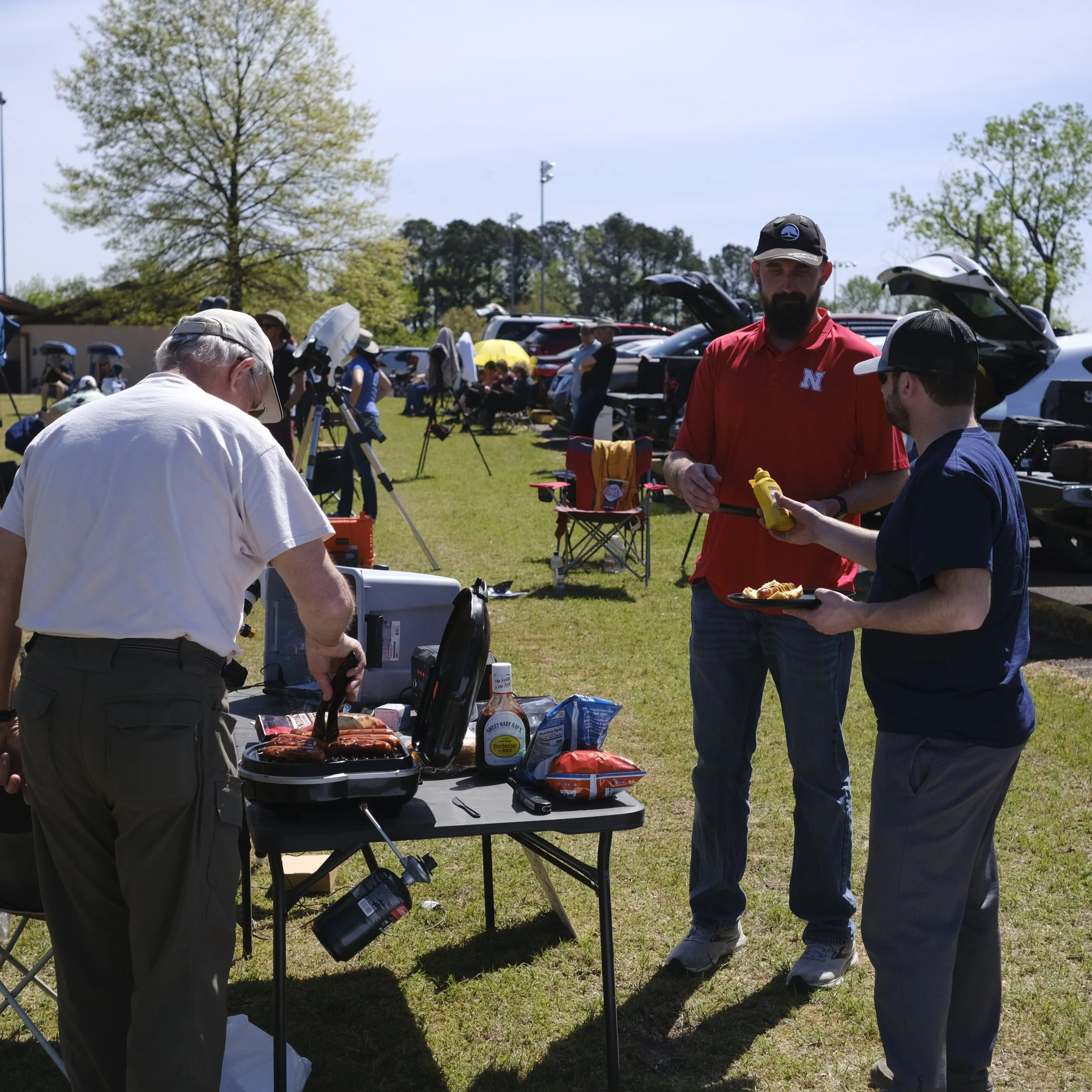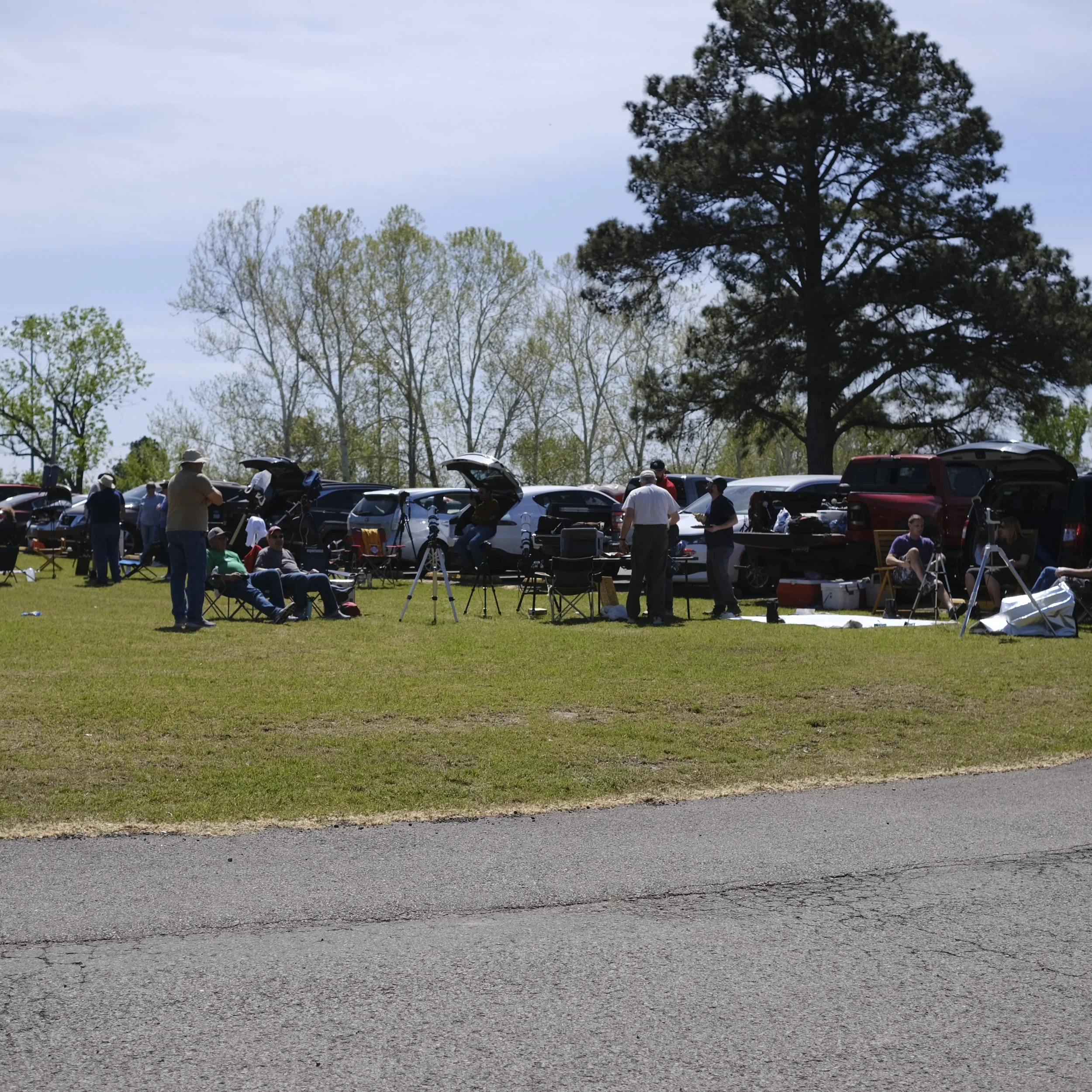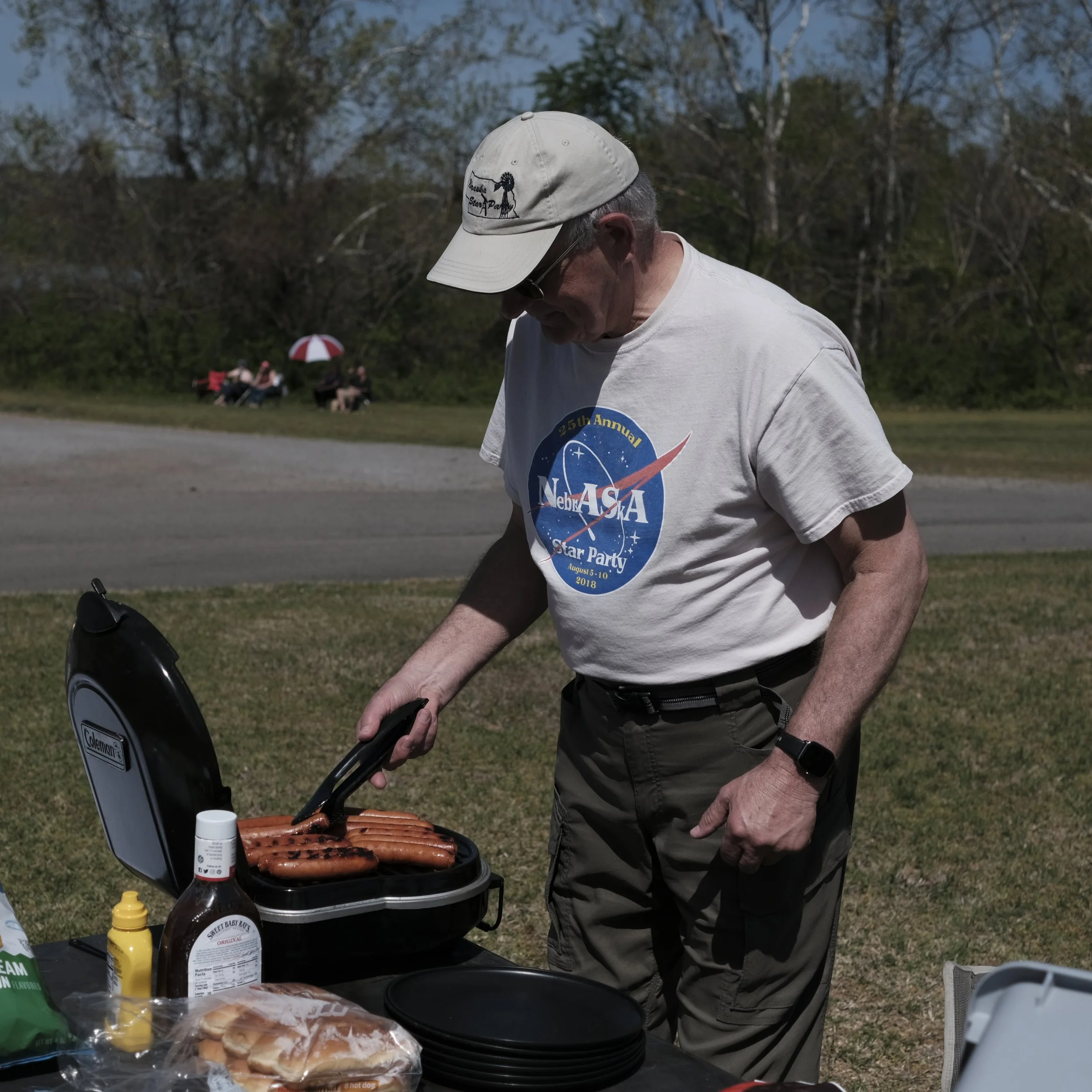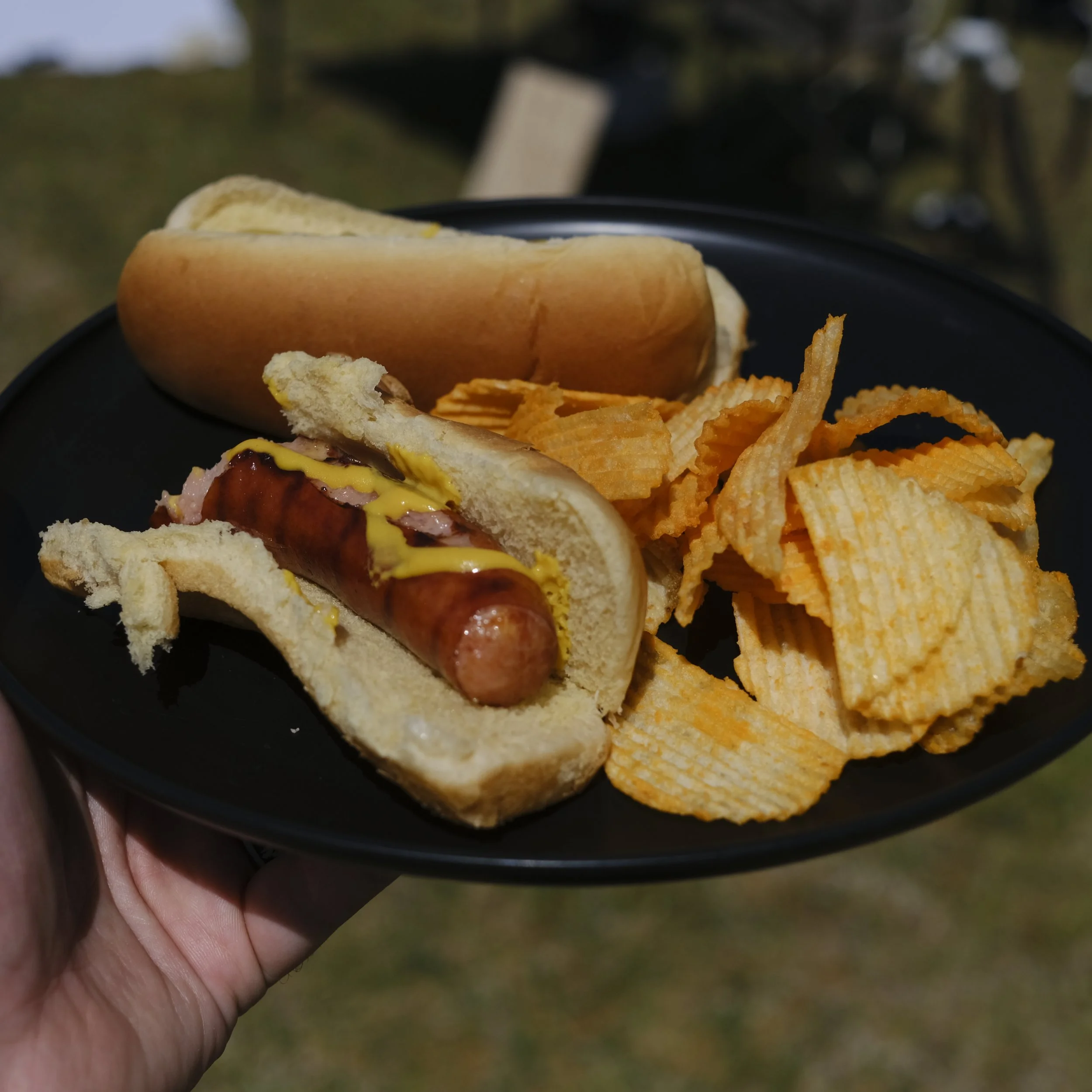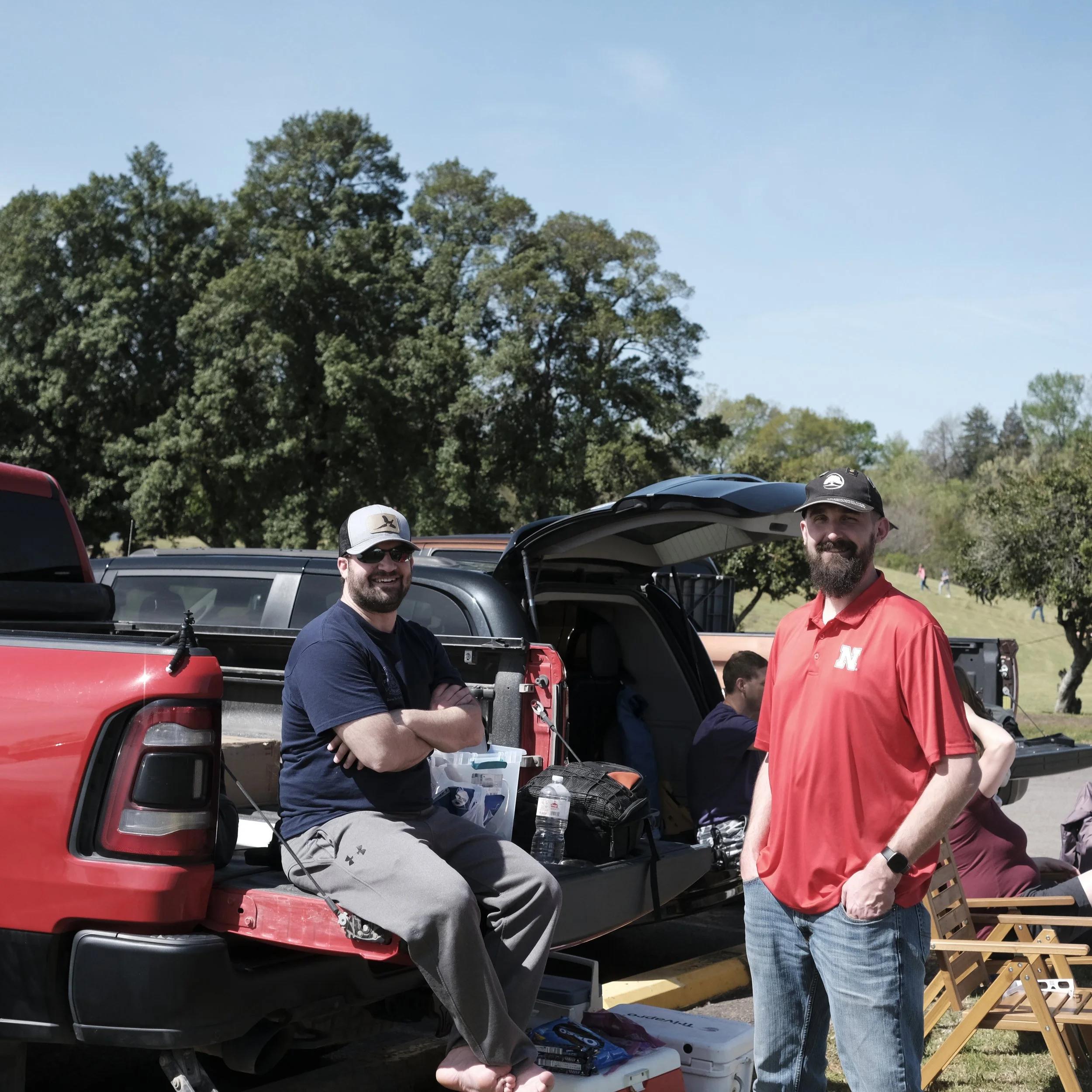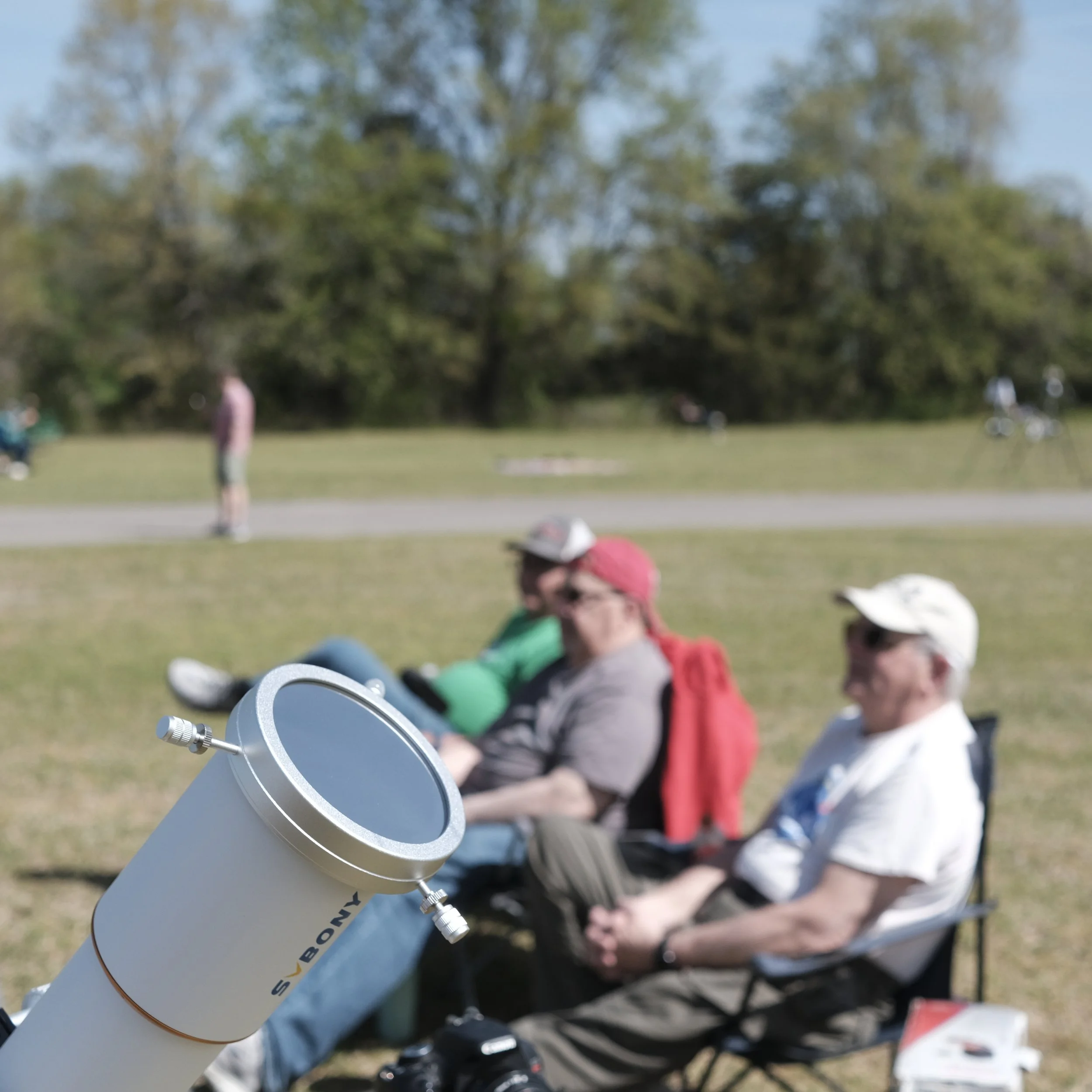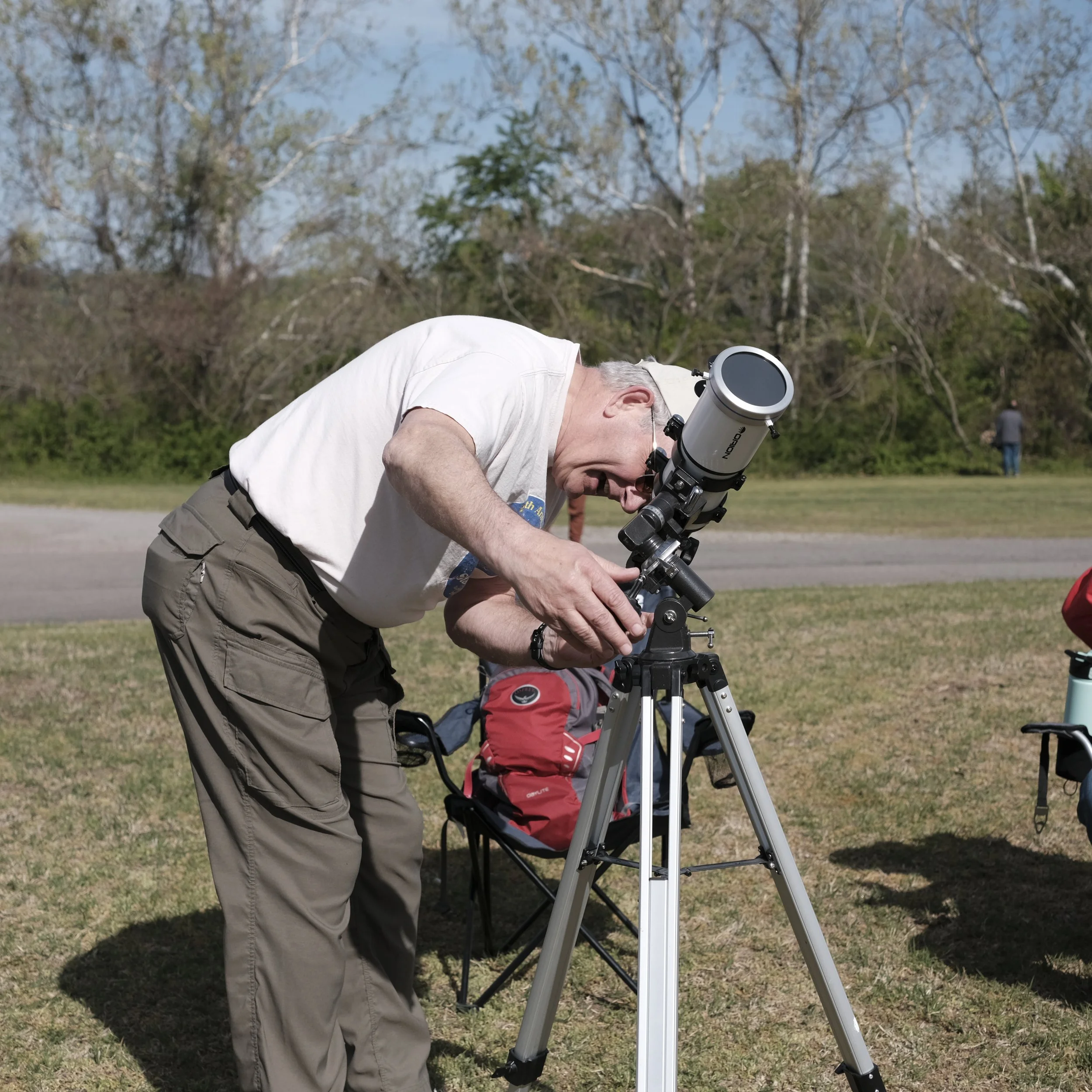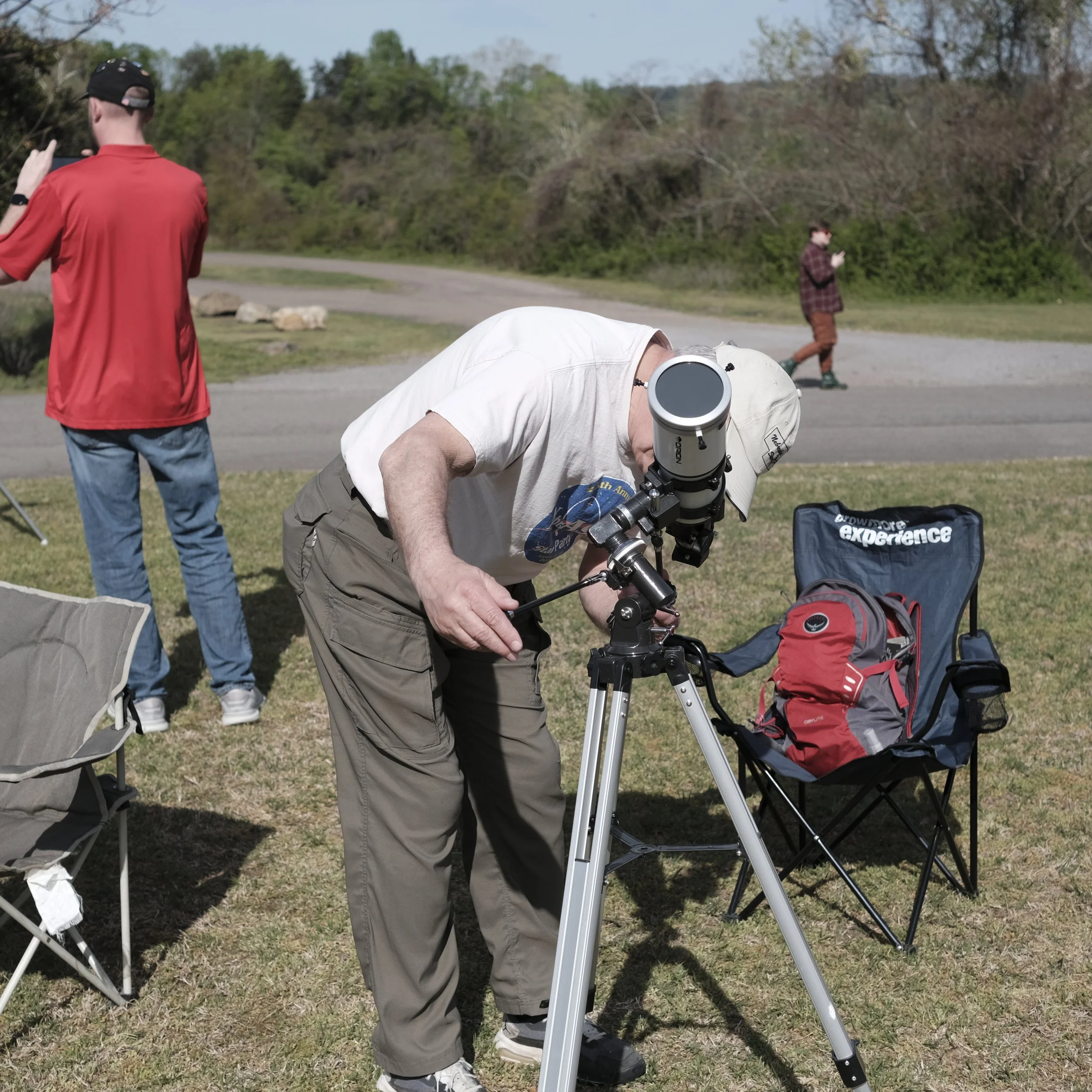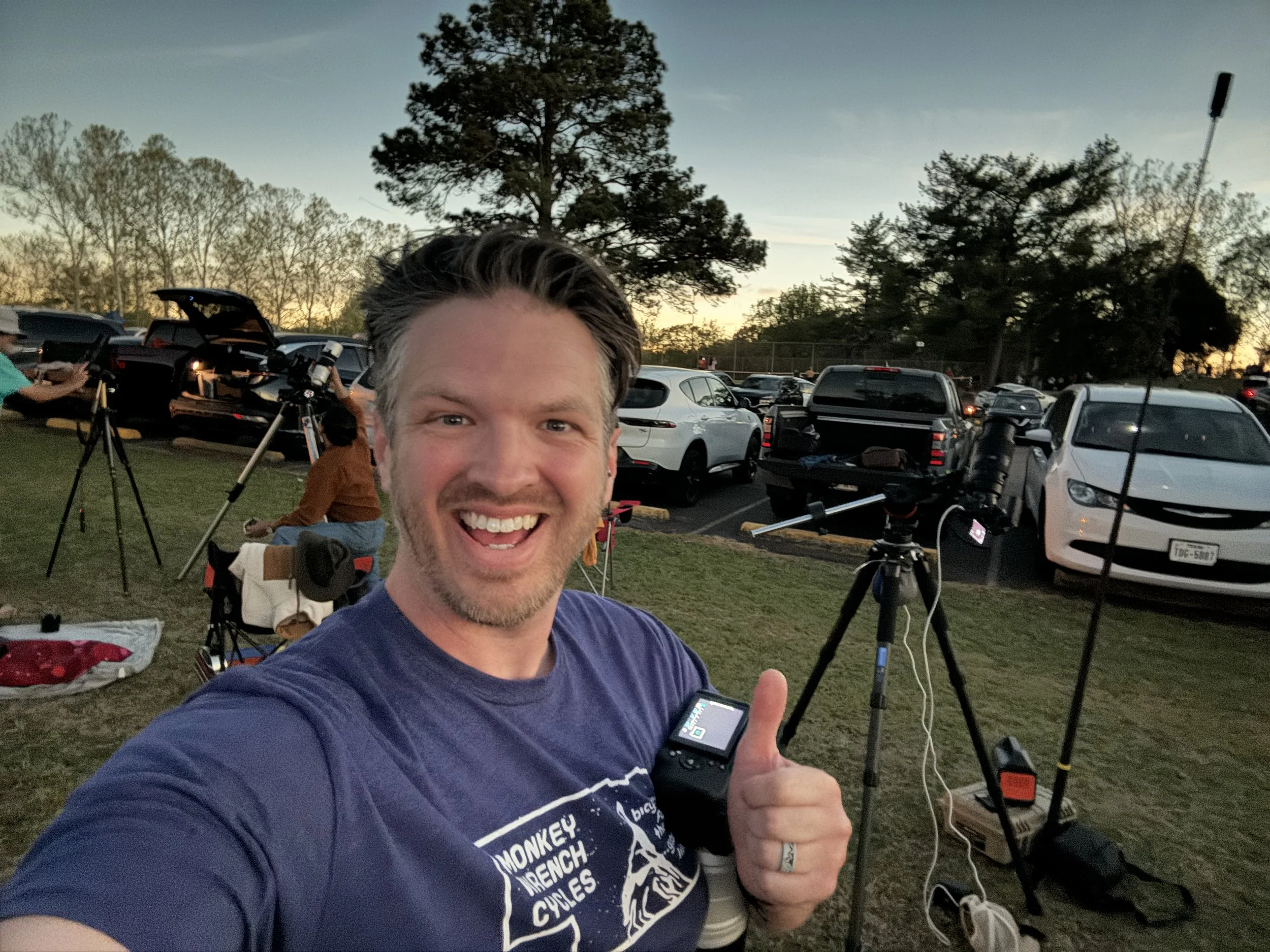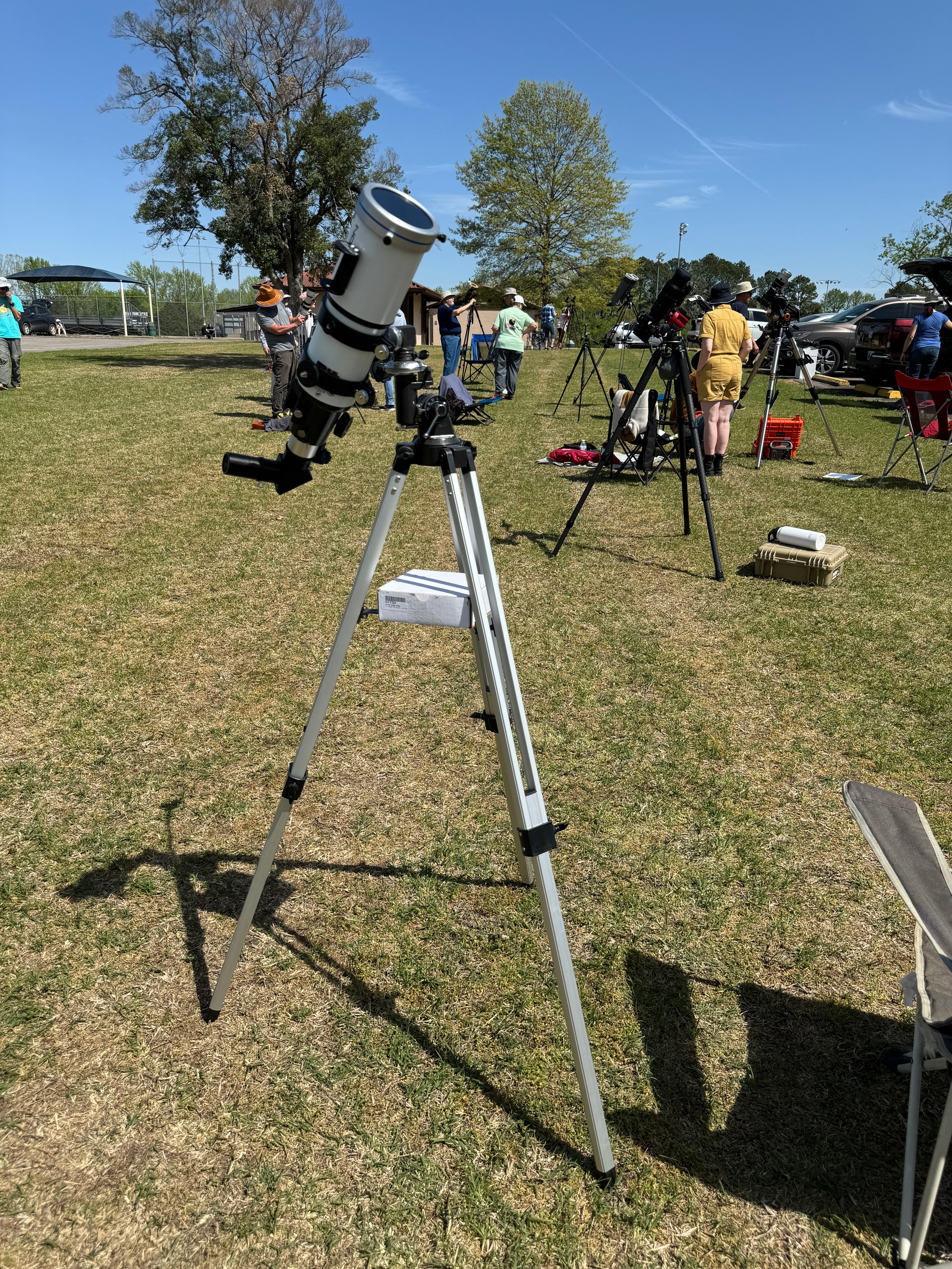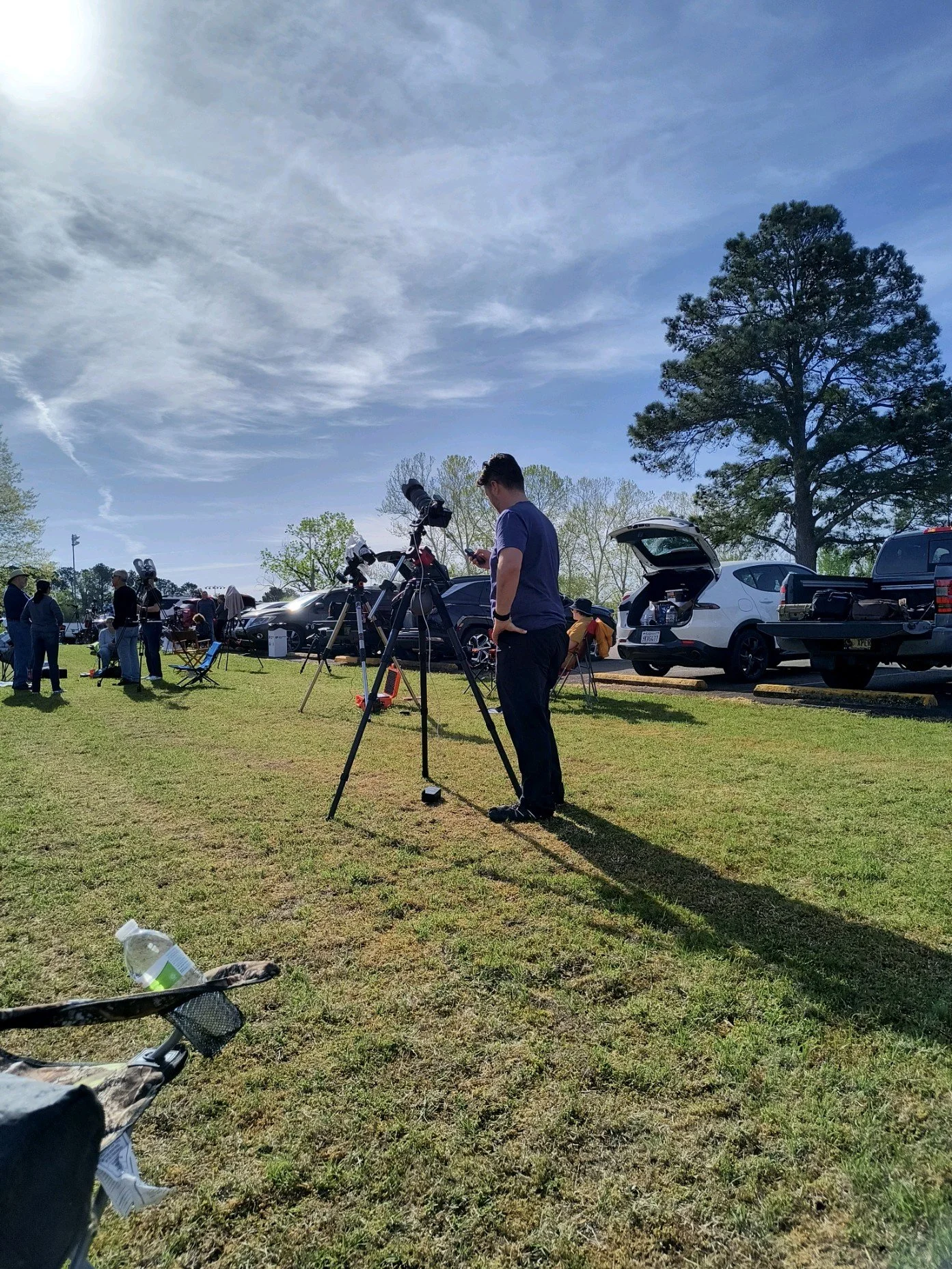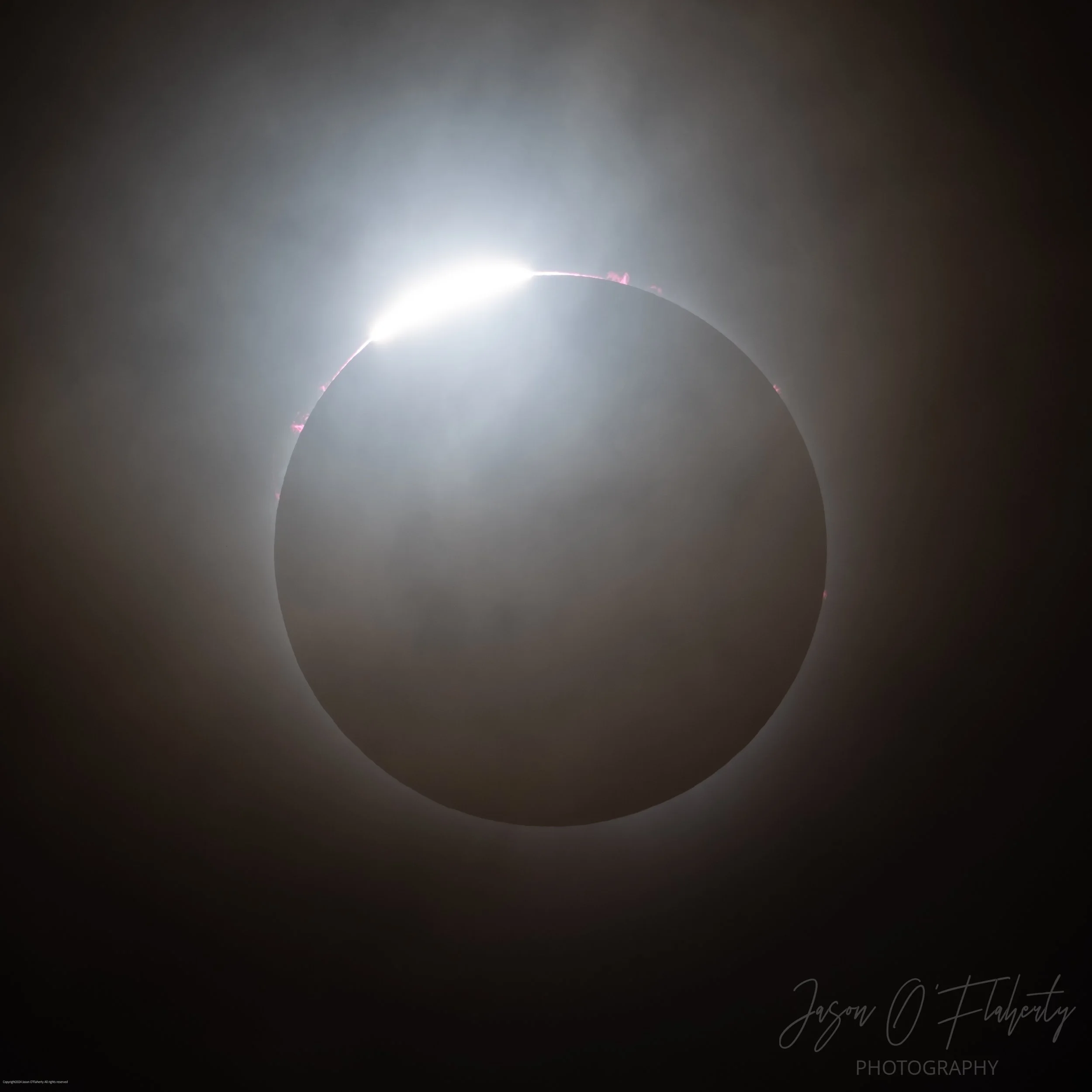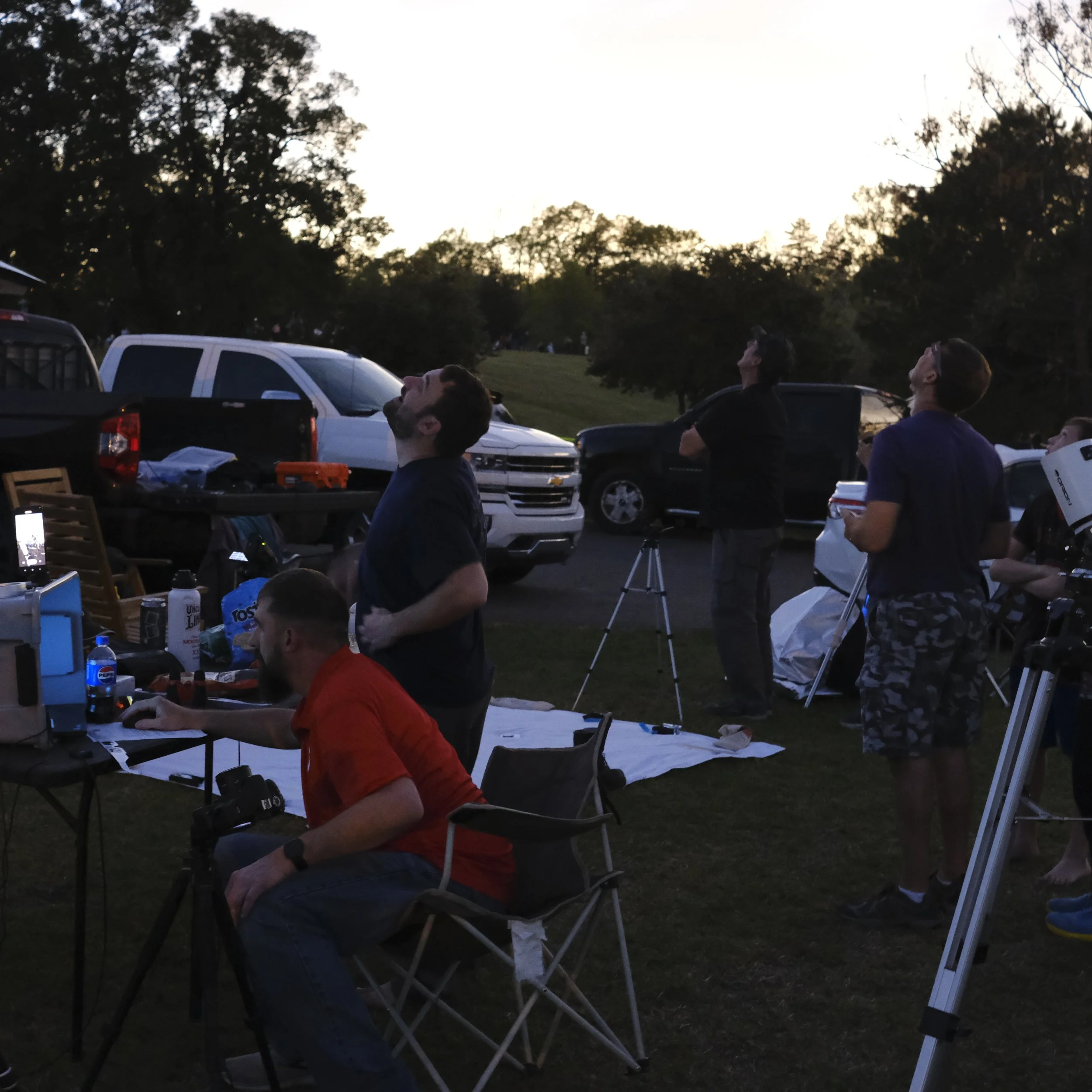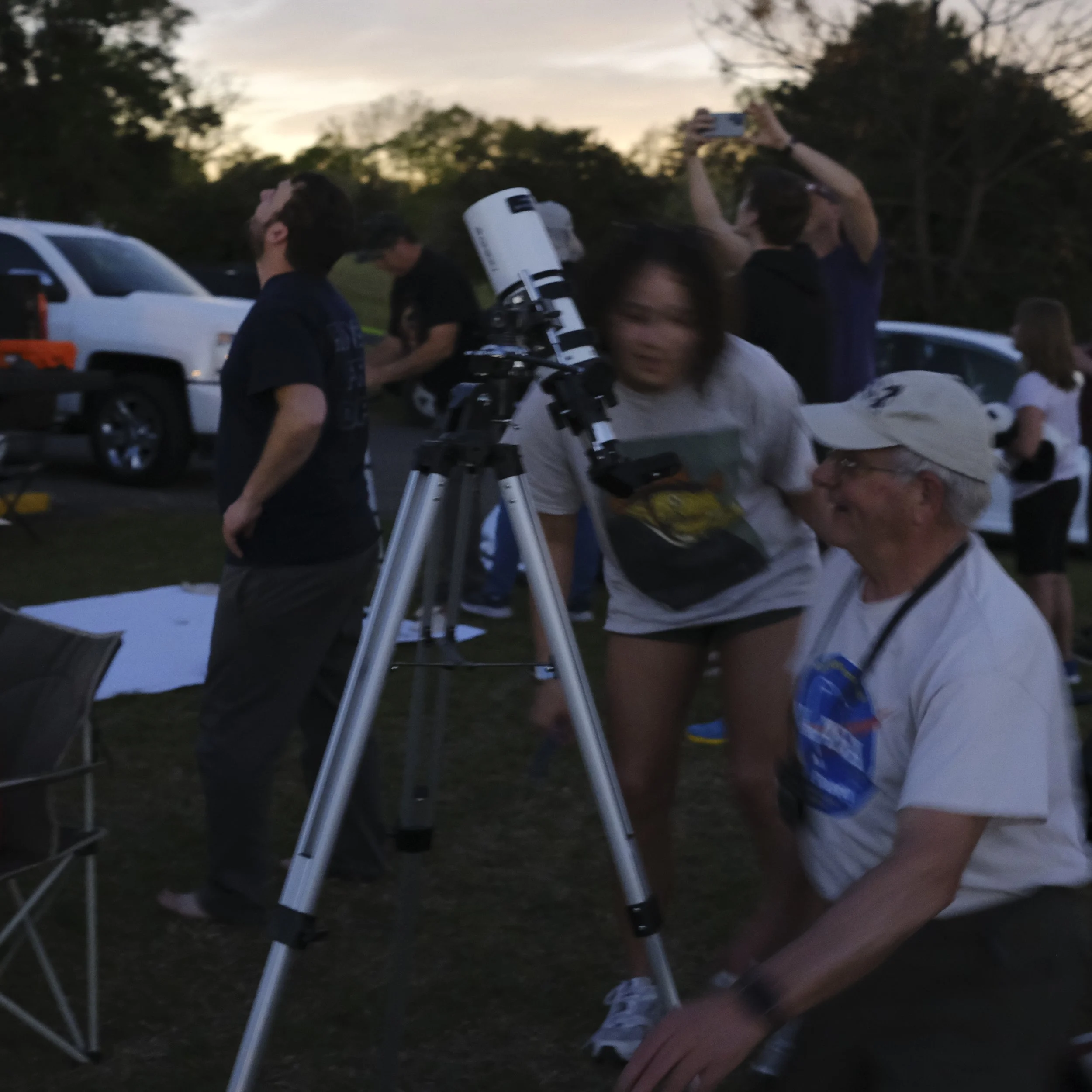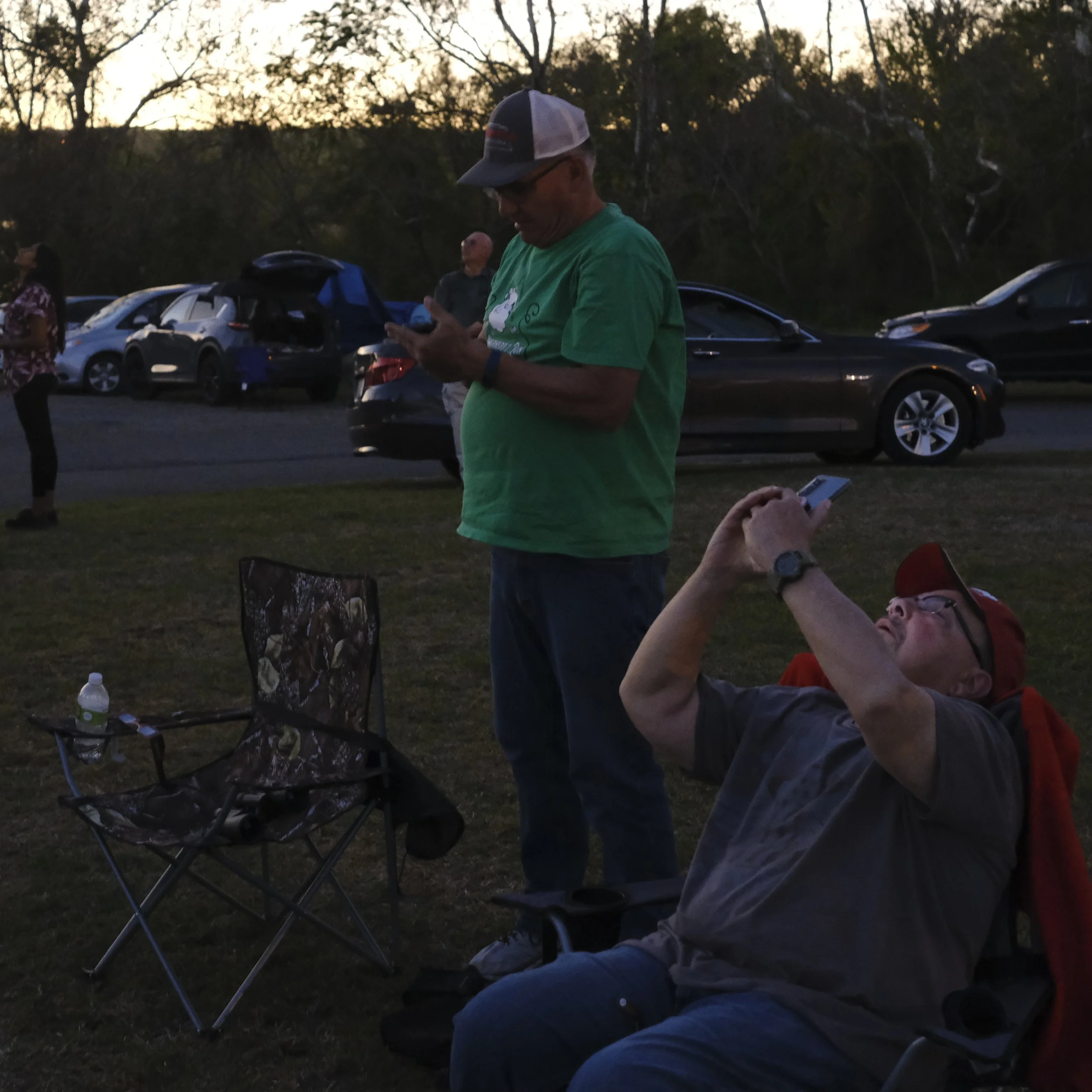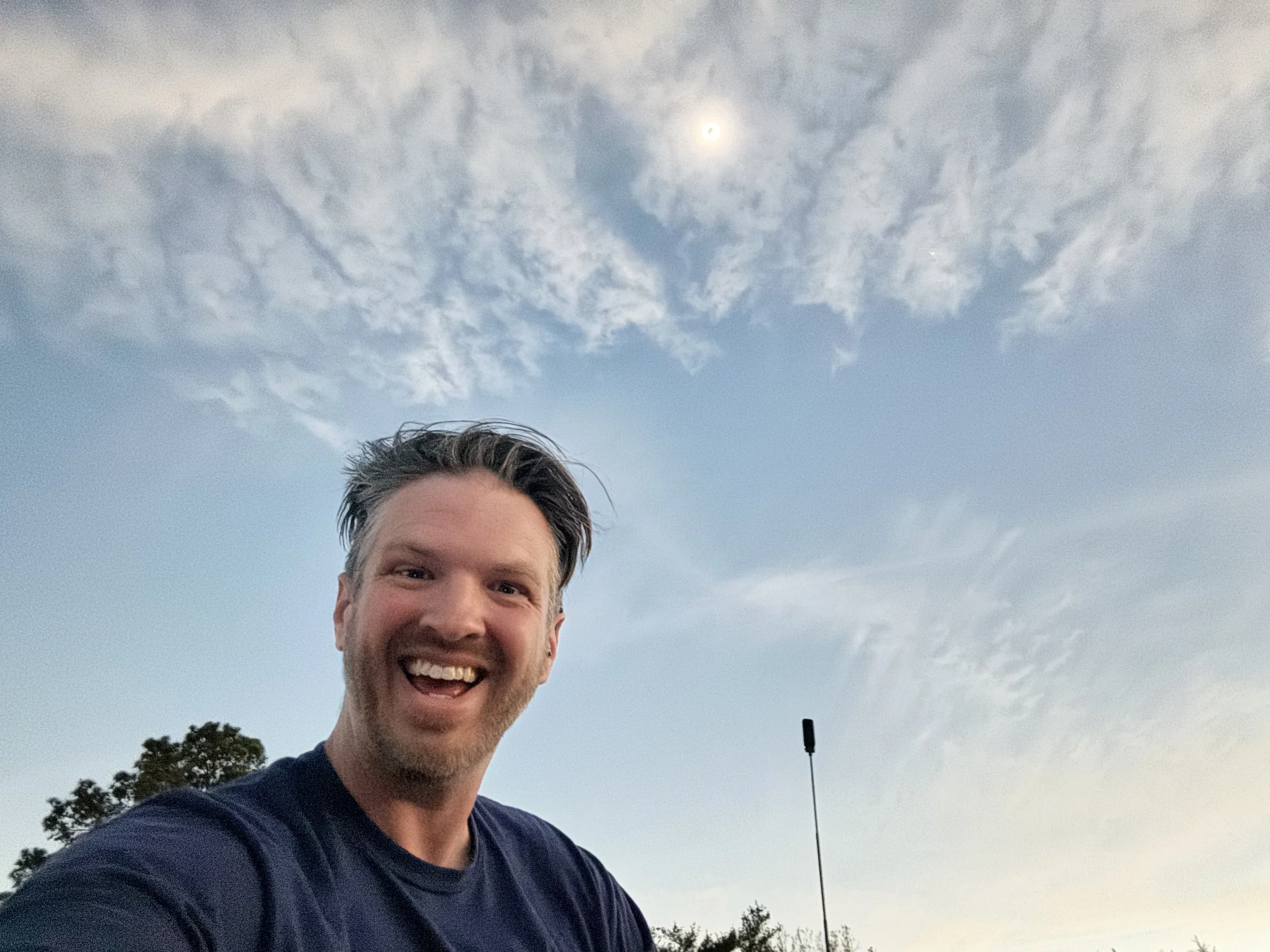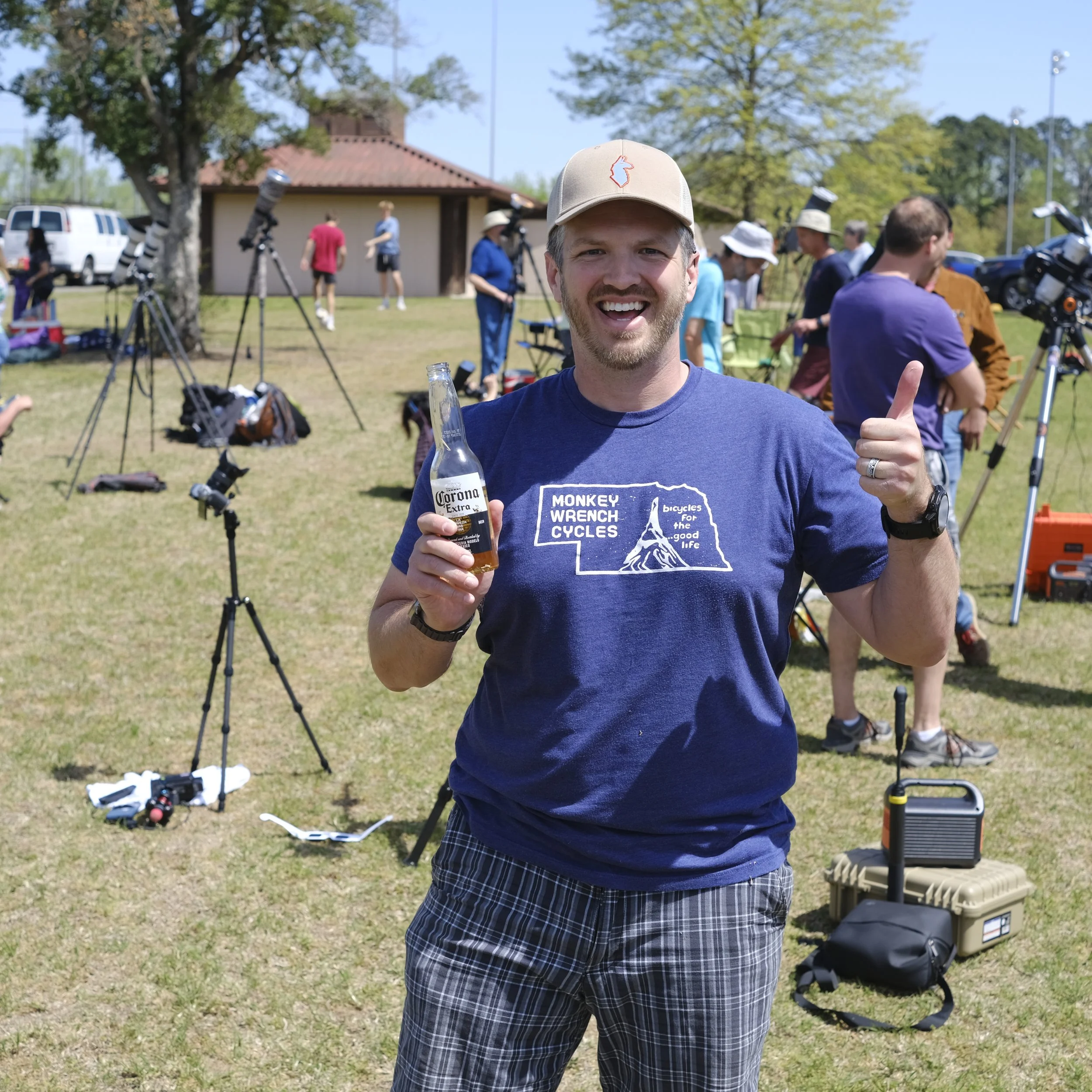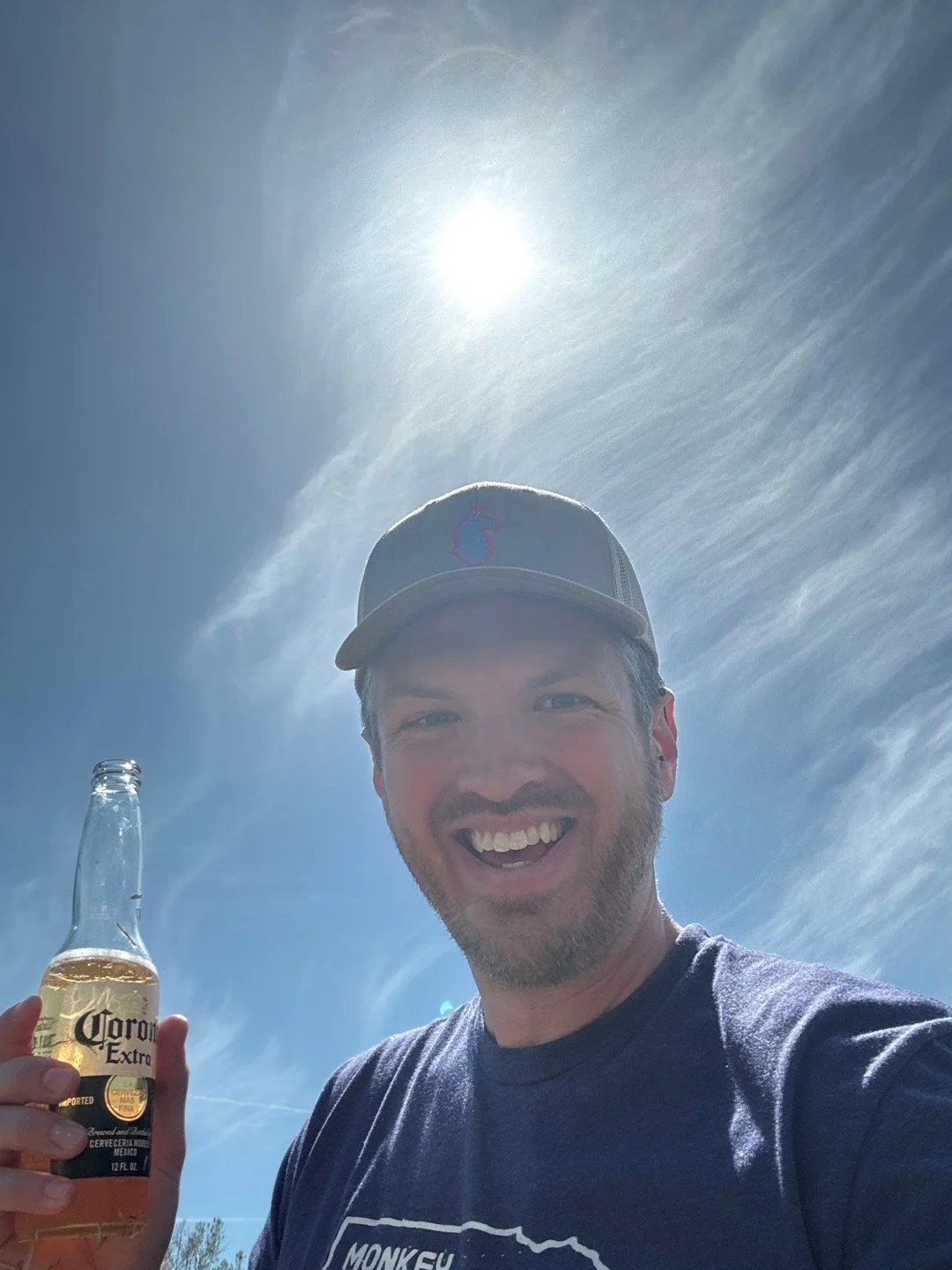My trip to see the 2024 Solar Eclipse
2024 Solar Eclipse
In early April, 2024, I travelled to the southeast United States to view the Total Solar Eclipse. Follow along on this amazing trip below
An Eclipse Story
By Jason O’Flaherty
On April 7th 2024, I party crashed the plans of four other PAC members and journeyed southeast to observe the 2024 Total Solar Eclipse. Jim Kvasnicka, Bob Kacvinsky, Brett Boller, Dave Churilla, and I, Jason O'Flaherty, left Bob's house Sunday morning to stay in Missouri that night before getting an early start on the 8th to travel into the path of totality. The original plan was to stay in Joplin, MO, at a VRBO rental house before continuing to Russellville, AR. However, Saturday weather reports showed a better chance of clear skies in southern Illinois, so we booked a hotel in Rolla, MO, with new plans to drive to Carbondale, IL, instead.
I had plans to stay south longer, so the four others had to ensure all of their equipment and luggage fit into Brett's dinosaur-themed RAM T-Rex truck, which is as loud and nearly as large as an adolescent king of the lizards. Getting everything packed under the tonneau cover would be a tight fit. Bob was quick to propose a sacrificial piece of luggage and offered to leave his telescope at home, but I was confident in Brett's self-professed Tetris skills, and together, we convinced Bob to take it.
The guys kindly offered to give me company in my truck on the drive down, but I declined since I love driving alone. The first half of the trip went well in our little caravan, with a stop at Arby's for lunch and the Women's National Championship Basketball game playing in the background of both vehicles. All along the drive, road signs warning of possible delays on eclipse day let us know we were headed in the right direction.
Shortly after the game's completion, as we passed through the Lake of the Ozarks region, we encountered the low point of our trip. Approaching an overpass bridge, we all saw something on the side of the bridge and directly above our lanes. It looked to be a worker standing on scaffolding off the side, which was a strange sight. As we got closer, however, the image resolved into a possible dummy being hung over the side by a group of people standing on the road above. Unfortunately, it was the sight of someone running across the bridge towards it that said this was not a joke. The speeding police car 30 seconds later and a check of my dashcam showed it was a grimmer situation. A man had tried to jump, but a couple of saviors were heroically holding on to him. I've since learned that they were able to pull him back over the railing to safety.
Left to Right: Jason O’Flaherty, Mike Ulrich, Bob Kacvinsky, Brett Boller, Jim Kvasnicka, Dave Churilla
The King of Trucks. Photo Credit: Jason O’Flaherty
Warning Signs. Photo Credit: Jason O’Flaherty
A Man In Need. Photo Credit: Jason O’Flaherty
After another hundred miles or so, the final exit to start the last 90 minutes of driving was in sight. I led the group and pulled into the exit lane when my phone rang. I answered to hear Brett say, 'Don't take the exit' as he sped past me in the left lane. I engaged my dormant storm-chasing skills and made a spectacular maneuver, if I do say so myself, to avoid the now-forbidden route and rejoin the main flow of traffic again.
Our New Route to Joplin instead of Rolla.
At the next gas station, I found out that the boys in the other vehicle had been scouring the weather reports. Two of the four models said Russellville now had a 10-15% chance of cloud cover, while the other two said 35%. All four models reported Carbondale to have at least 35% cover. We took a vote as we emptied our bladders and filled our tanks. We decided the 50% chance of better weather to the south was worth it to change course.
The VRBO that was rented for two nights in Joplin didn't have a cancellation option, so we still had the place booked for Sunday night. Staying there would put us closer to Russellville. After a frustrating 15 minutes with Expedia, I was able to cancel our hotel rooms in Rolla. Unfortunately, the four-hour drive back to Joplin meant there would be no time for disc golf before nightfall, a sad fact for some but a sacrifice made for a greater purpose.
The rest of the evening was uneventful for the most part. There was a missed turn that added 20 minutes to our drive, a blanket that smelled of underarms and curry, and "shot" glasses obtained for a hopeful, celebratory post-eclipse toast large enough to be used as a hat for a small child. Dinner and an early bedtime led us to the morning of the big event.
We got an early start, leaving at 8 a.m. We woke Brett's friend, Mike Ulrich, who had arrived from South Dakota in the middle of the night and slept in his car in the driveway. He joined our caravan as we set off for the solar-promised land of Russellville. Our early start meant that traffic was light. There was even time for a spot of breakfast at McDonald's, though, unfortunately, not enough time for the senior staple, Denny's.
My Pile of Gear
"Shot" Glasses
We had a man at ground zero who warned us about $100 parking fees at some of the Russellville parks. He'd found us an alternative site at one of the ballfield rec areas. We claimed some of the last spots that let us back our vehicles in and unload directly from the tailgates to a perfect grass area. The next few hours went by in a hurry-up-and-wait state of mind.
Getting Set Up. Photo Credit: Jim Kvasnicka
Brett set up a table for his laptop, which he used to automate control of his camera during the eclipse. Bob set up and shared the use of his telescope. Jim and Dave found the best spot to observe from the comfort of their chairs, and I set up my six cameras. The sky above was blue, but some uncomfortably large white clouds were off in the distance. About an hour before showtime, Bob grilled some Johnsonville Brats, which we enjoyed while socializing with our neighbors.
All eyes were on the sky, waiting for the first glimpse of the moon intruding on the sun's spotlight. Glasses went on, eyes went to telescopes or cameras, and binoculars raised. If anyone had bothered to look around, the patch of grass would have been awash in glistening chrome solar protection. Those with the most powerful magnification saw it first.
Our Group
Waiting for the start
At 12:33:13, the sun's perfect disc was suddenly not so flawless anymore. A blemish had appeared near the 5 o'clock position. Shouts of "It's starting!" rippled through the crowd, followed by whoops and hollers over the sound of dozens of camera shutters, each drumming out its own rhythm. Over the next 77 minutes, we watched an unseen force slowly consume the solar cookie, first in nibbles, then in bites. Those with apps called out the various milestone percentages. Others ticked off the sunspots as they disappeared into the void.
With only minutes until totality, a lone cloud broke away from the flock. Like a child, as if to say, 'Look at me,' it stepped onto the stage and moved front and center, threatening to ruin the show. Fortunately for the audience, it was a whisp of a thing. Thin and short-lived, it only served to enhance the atmosphere.
The First Nibble. Photo Credit: Jason O'Flaherty
As the clock struck 1:50 p.m., the majesty of a total solar eclipse was upon us. Standing in the dim light, we noticed a sudden drop in temperature. As we looked towards the horizon, a shadow rapidly approached us. Planets started to appear in the sky, and the call of "Filters off!" echoed through the air. The sun gave one final flicker as it passed through the diamond ring phase. Everyone lowered their solar glasses, and we gazed in awe at the breathtaking sight of totality.
The totality of a Solar Eclipse is nearly impossible to describe in words. During this brief celestial miracle, half a dozen things fight for attention. It is a profoundly moving personal experience, but at the same time, you immediately have a bond with everyone around you. When someone cheers, it brings you joy. When you cheer, others respond with delight. It is an event that connects all of humanity since prehistoric times. The scale of the cosmos demands reflection, camaraderie, and elation.
This was my second total eclipse. (See my First Eclipse Here) My experience this time was running around checking the automated cameras and using a handheld camera at 600mm to capture the moment and get a close-up view. This eclipse had several prominences that were visible to the naked eye. This event led to a foolish decision when I ran over to my tailgate and tried to put on a teleconverter in the semi-dark, eating away at precious seconds of observing. To add insult to injury, I forgot to zoom back in after putting it on, so I had even less resolution than if I'd left it off.
I recall hearing cheers and hollering myself. “Wow” was the word of the day as it resounded from mouth to mouth. Bob's giddy joy as he looked through his scope brought a smile to my face. Afterward, he thanked us for not letting him leave it at home as he'd suggested. Many others were able to look through it as well.
Diamond Ring Behind a Cloud. Photo Credit: Jason O'Flaherty
Solar Prominences. Photo Credit: Jason O'Flaherty
The four minutes and nine seconds of totality quickly passed. Too soon, the sky began to lighten. Cries of "Glasses on! Filters on!" cut through the "Wows!". The crowd gave another cheer to thank the heavens for their performance. The 6 of us in our group shared high fives, hugs, thank yous, and maybe even a few tears. Brett passed out a round of Coronas, which seemed appropriate for the occasion. We also tried the special edition Eclipse Oreos with Pop Rocks in the cream. In all the excitement, we forgot to break out the celebratory shots.
I’d left the lens cap on!
Brett and I complimented each other on the photos as we flipped through our cameras' memory cards between the continuing shots of the retreating moon. It was about this time that I realized my mistake with the zoom lens and also that I'd forgotten to take the lens cap off of a wide-angle camera that I was using to attempt to photograph comet 12P/Pons-Brooks.
The crowd slowly faded away, leaving only the diehards and camera enthusiasts to watch the conclusion. I was staying in Russellville while the rest of my companions were headed back to Joplin for the night. We said our goodbyes. They headed north to begin the sluggish drive back to Joplin while I headed to the store to buy aloe. Shocking as it may be, even when the moon is photobombing the sun, you still need sunscreen.
The moment I realized I'd left the lens cap on
The Members of Our Party at 50% Eclipse. Photo Credit: Brett Boller
This is a composite of 4 events of Solar Eclipse totality.
From top left clockwise:
Baily's Beads - caused by the irregular lunar surface breaking up the final (or first) sliver of light from the sun
Solar Prominences - plasma stretching thousands of miles from the sun's surface into the corona.
Diamond Ring - similar to Baily's Beads, it is the first (or last) significant light making its way past and around the lunar surface.
Corona - The outermost layer of the sun. It is both the dimmest and the hottest layer, reaching around 5 million miles from the surface.
My website blocks downloads, so if there’s one you’d like to download, please click the button to go to the download page.
